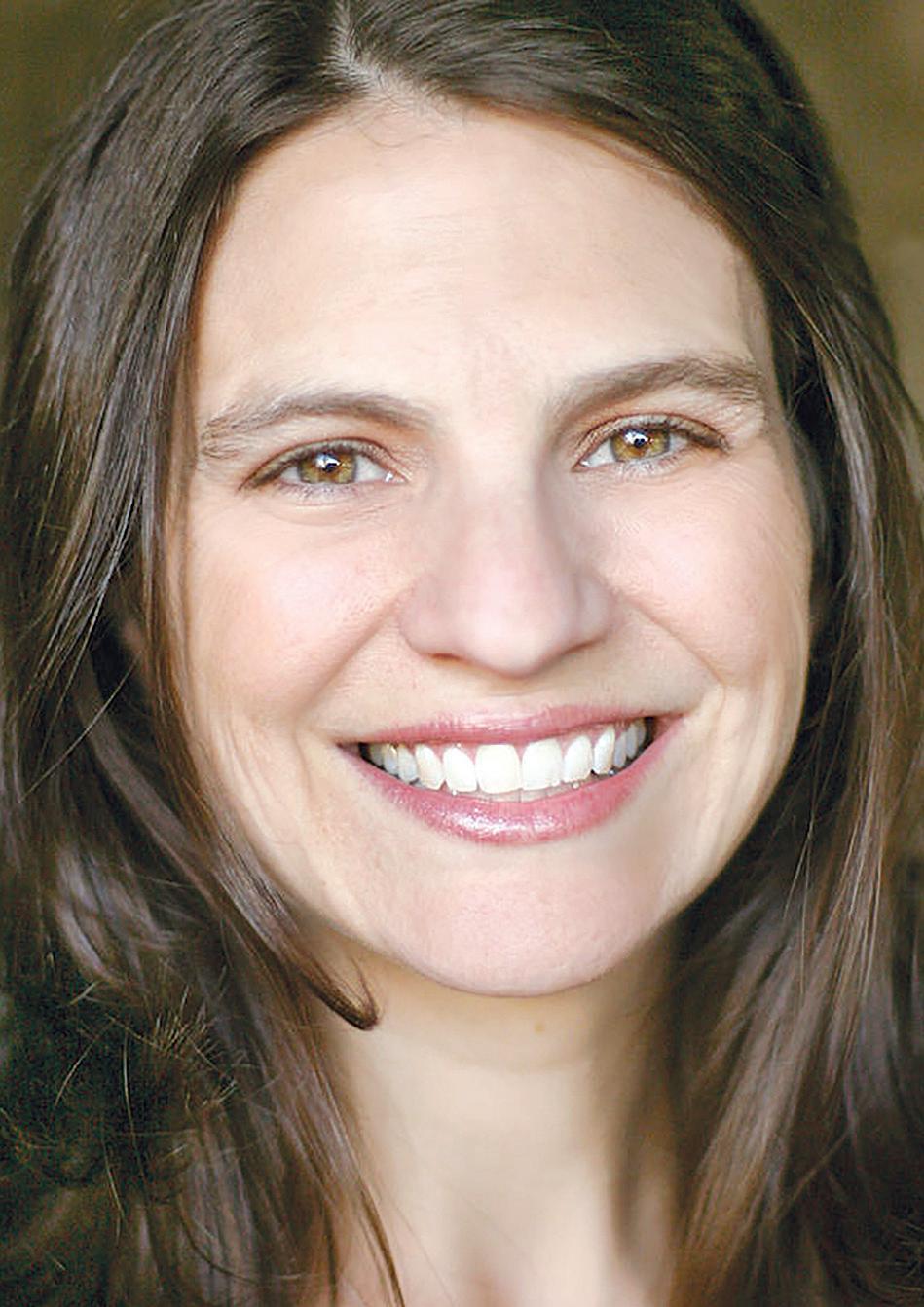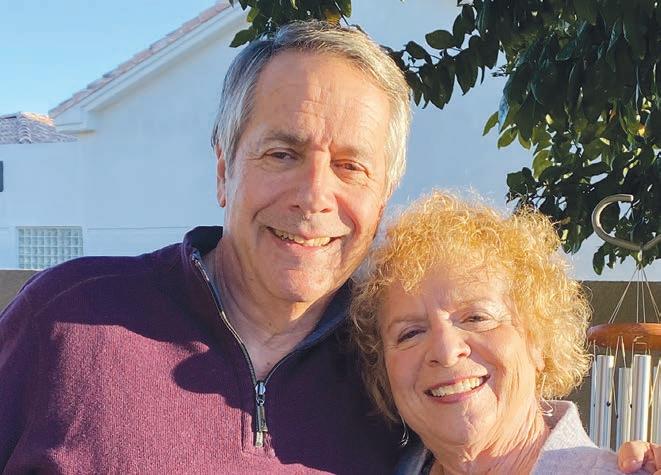TEAM ISRAEL

Team Israel prepares for Olympics


Team Israel prepares for Olympics
In its first survey of the American Jewish community since 2013, the Pew Research Center found a host of similarities with the 2019 Maricopa County Jewish Community Survey conducted by Arizona State University.

Kenneth Goldstein, a visiting professor who led the study for ASU, recently opined in a webinar for Jewish News that Maricopa County’s Jews are “probably not that different if we looked at Jews across the country,” because this is a large metropolitan area and many residents are transplants.
In many ways Goldstein was right. Several of Pew’s findings matched the local study. However, the national survey, released May 11, also identified broader trends about religious affiliation by age group, political rifts and racial and ethnic diversity, which ASU’s study did not fully investigate.
“There are signs of potential change we are picking up on,” Becka Alper, one of Pew’s lead researchers, said in a call with the media. Some of these are generational distinctions.
Pew found that, compared with an older generation, many Jews under 30 are either Orthodox or don’t identify as religious at all.
While 17% of American Jews 18-29 years old say they are Orthodox, 41% describe themselves as atheist, agnostic or “nothing in particular,” but still identify as Jewish for ethnic, cultural or family reasons.
“If you are familiar with the American-Jewish community, you’ve
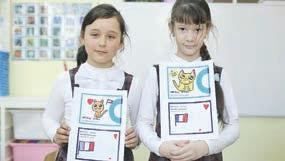
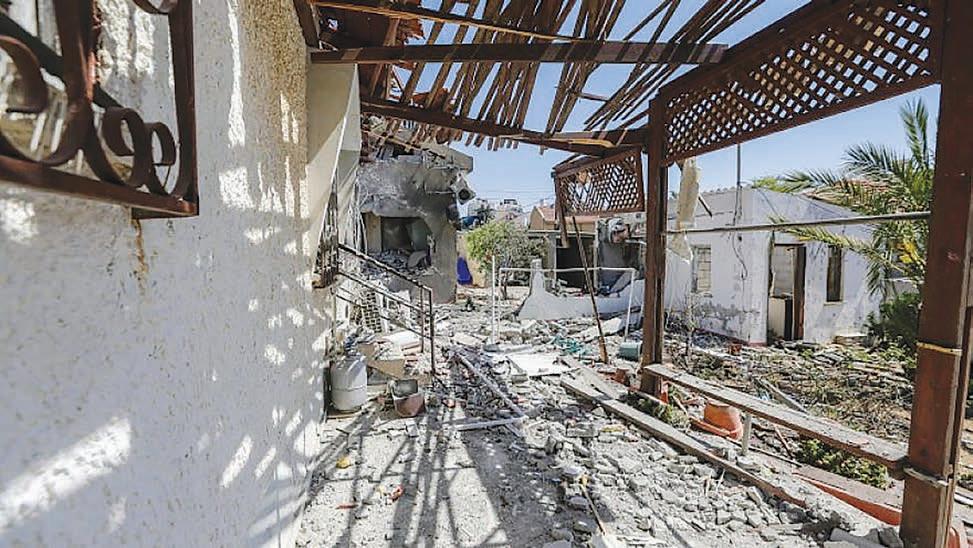
SEE PEW, PAGE 2
J
ewish groups from across the religious and political spectrum in the United States and Israel are voicing concerns about the ongoing conflict in Israel and the Gaza Strip. Synagogues and organizations in Greater Phoenix followed their lead in addressing the situation with statements offering support for Israel, prayers for peace and hopes for a cease-fire and peaceful resolution soon.
The Union for Reform Judaism stated that it is “deeply concerned and pained by the spiraling violence
happening over the last several days in Jerusalem and beyond. At this challenging moment we want to emphasize that attacks perpetuating the cycle of violence delay peace and increase bloodshed.”
Although they “particularly condemn Hamas’ indiscriminate rocket attacks that once again are sowing fear and destruction,” they also “urge Israel to protect the freedom of worship of Muslims in the holy month of Ramadan and to use all

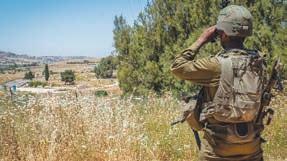
Linda Mandel Cucher stands with her in-progress painting of a man praying at the Western Wall. To read more, go to p. 18.
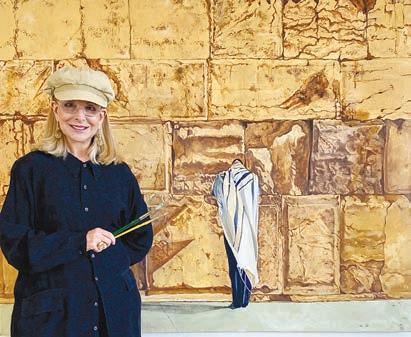
seen the growth in Orthodox neighborhoods, communities across the country. It’s not surprising, but the survey does capture that,” said Alan Cooperman, director of religion research at Pew Research Center and a lead researcher of the study.
Jews are also growing further apart politically.
The number of Orthodox Jews who identify as Republican increased from 57% in 2013 to 75% in this year’s Pew survey, while 70 to 80% of Reform, Conservative and nondenominational Jews lean Democratic.
Goldstein, who is also a professor of politics at the University of San Francisco, said the ASU study was too limited by its methodology and sample size to be able to research similar breakdowns, but he thinks those findings would be “strikingly similar” in Maricopa County.
Pew estimates that 2.4% of U.S. adults are Jewish, or approximately 7.5 million people. ASU estimated that 2.36% of adults in Maricopa County are Jewish, or approximately 79,000 people.
And within that group, people see themselves in a variety of ways.
“Jews are simply not as homogeneous as we think and as many people think,” Goldstein said.
Eight percent of the American Jewish population identify as Hispanic, Black or Asian — or anything other than non-Hispanic white — a share that nearly doubles to 15% among Jews between 18 and 29. These numbers are sure to be closely examined as many Jewish institutions grapple with how to welcome “Jews of color,” referring to Jews who are not white, though Pew did not use that term.
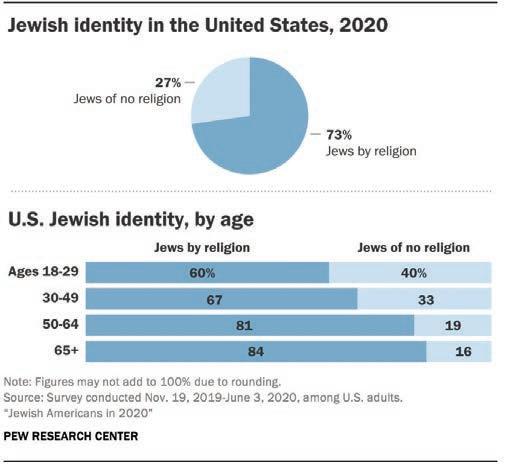
“Jews of color is a different issue, because we
didn’t feel comfortable supplying a definition saying if you’re this, you should call yourself a Jew of color,” Cooperman said.
Some survey respondents identified with more than one race and 13% said they live in multiracial households. Overall, 17% of survey respondents said they lived in a house where at least one person is multiracial, Hispanic, Black, Asian or of another non-white racial group.
Two-thirds of Jews identified as Ashkenazi — Jews who follow the customs of Central or Eastern Europe. Seven percent call themselves Sephardic (of Spanish ancestry) or Mizrahi (of Middle Eastern heritage), alone or in combination with another identity.
Regardless of background, Jews — in general — are less religious than American adults as a whole, Pew found. While 21% of Jews say religion is “very important,” 41% of all U.S. adults say the same. And only 12% of Jews attend services at least once a week, compared to 27% of the general population.
Still, three-quarters of U.S. Jews say that “being Jewish” is either very or somewhat important to them. Most Jews — 85% — say they feel either “a great deal” or “some” sense of belonging to the Jewish people.
ASU’s survey also found Jews in Maricopa County say being Jewish is important in their lives.
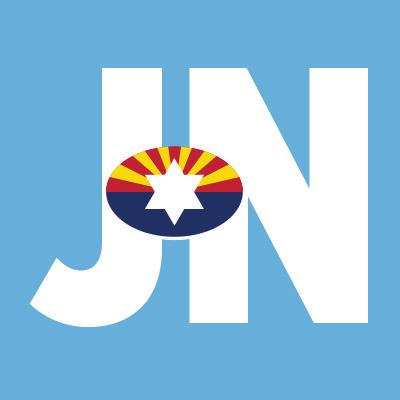
Pew and ASU found that most Jews agree on some factors that are essential to Judaism.
Seven-in-ten or more U.S. Jews say that remembering the Holocaust (76%) and leading a moral and ethical life (72%) are essential to their Jewish identity, according to Pew. About half or more also say that working for justice and equality in society (59%), being intellectually curious (56%) and continuing family traditions (51%) are essential.
Jews in Maricopa County similarly said that leading an ethical and moral life, remembering the Holocaust and working for justice and equality are essential to being Jewish.
Goldstein said he was surprised at how high remembering the Holocaust ranks, and it is interesting how that response tracks with the concern in the community over antisemitism.
“That’s actually one of the few survey questions I’ve seen where younger people are even more concerned about it (antisemitism) than older people,” Goldstein.
The Pew survey found more than 9 in 10 Jews say there is at least “some” antisemitism in the United States, including 45% who say there is “a lot.” Slightly more than half of Jews surveyed (53%) nationally say that they feel less safe today than they did five years ago as a Jewish person in the U.S.
The majority of Jews surveyed by ASU said they feel antisemitism has gotten worse in the past year, with roughly 20% of respondents personally experiencing antisemitism from 2018-2019.
“This number was very high in 2019. It would almost certainly be even higher now,” Goldstein said. JN
January 8
January 22
February 5
February 19
March 5
March 12
March 19
March 26
April 2
April 16
May 7
May 21
June 4
July 9
August 6*
August 20
August 27
September 3
September 10
September 24
October 1
October 15**
November 5
November 19
December 3
December 17
PUBLISHER Jewish Community Foundation of Greater Phoenix

GENERAL MANAGER Rich Solomon | 602.639.5861 rsolomon@jewishaz.com

MANAGING EDITOR Shannon Levitt | 602.639.5855 slevitt@jewishaz.com
STAFF WRITER Nicole Raz | 602.872.9470 nraz@jewishaz.com
ADVERTISING SALES CONSULTANT Jodi Lipson | 602.639.5866 jlipson@jewishaz.com

SUBSCRIPTIONS 602.870.9470 x 1 subscriptions@jewishaz.com
GRAPHIC DESIGNER Frank Wagner | 410.902.2300 ads_phoenixjn@midatlanticmedia.com
Publisher | 2013-2016
Florence Newmark Eckstein, Publisher | 1981-2013
Cecil Newmark, Publisher | 1961-1981
Pearl Newmark, Editor | 1961-1981
M.B. Goldman, Jr., Founder | 1948-1961
PROUD MEMBER OF

The statement ends with the desire to minimize extremist voices — both Jewish and Palestinian — which would only further polarize the situation.
Several Reform congregations in Greater Phoenix, too, offered prayers and a caution against extremist viewpoints.
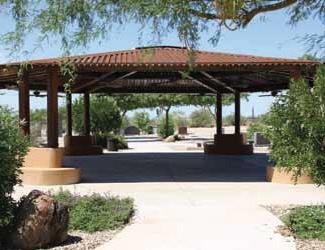
Temple Solel Rabbi John Linder urged members to support “our brothers and sisters in Israel with emergency aid” and highlighted aid organizations like Magen David and Adom.
“The relative quiet of many months between Israeli Jews and Palestinians was shattered this week,” the statement reads. “As Jews, in Israel and around the world, we are expansive enough to both stand in solidarity with Israel, and feel the pain of the Palestinians. This is no time for prayers of vengeance.”
Congregation Beth Israel offered prayers and stated: “As we have all been horrified by recent terrorist events throughout Israel I know you will join me in praying for strength and resolution: May the People of Israel, the Land of Israel and the State of Israel be blessed under God’s protection.”
Temple Beth Sholom of the East Valley, a member of the United Synagogue of Conservative Judaism, offered prayers as well, while Rabbi Herschel “Brodie” Aberson of Temple Beth Sholom of the East Valley offered a sentiment from Hillel:
“We need to remember it’s not enough to just be for ourselves, we need to be for others. And it’s not enough to just be for others, we need to be for ourselves.”
Orthodox groups such as the National Council of Young Israel also urged prayer for Israel: “The pain and suffering that they inevitably feel is palpable, and the mental anguish caused by these abhorrent and interminable terrorist attacks is profound. We urge everyone to pray for a speedy conclusion to the incessant missile strikes on Israeli cities and encourage people to engage in Torah study in the merit of those who have tragically lost their lives or sustained injuries due to the rocket attacks.”
Chabad of Mesa Rabbi Laib Blotner said there is much people can do for Israel, even from afar.
“The Torah teaches us (and history has repeatedly demonstrated to us) that the physical protection of each one of us — and, indeed, our very collective destiny! — is intrinsically connected to our spiritual activism. When we pray or dedicate a good deed to our brothers and sisters in Israel, we create a spiritual defense shield for them that will help them through difficult and dangerous times. Light the Shabbos candles, put on tefillin, place a mezuzah on your door, give extra tzedakah and recite psalms.”
Congregation Beth Tefillah Rabbi Pinchas Allouche also urged action.
Temple Chai released a statement that “we denounce all those who use fundamentalism and violence as tools. We pray, above all, for peace and tranquility within the land of Israel.”
Temple Kol Ami Rabbi Jeremy Schneider was also among those offering thoughts.
“I believe that the establishment of the modern State of Israel and its 73 years of survival and thriving is a sign of God’s hand in history,” he said. “The existence of the State of Israel, and the IDF, is an assurance of the continued welfare of both the Jewish State and the Jewish people.”
On behalf of Conservative Judaism in Israel, Rabbi Andi Sacks, director of Masorti’s Rabbinical Assembly in Israel, released a statement expressing, “deep sorrow and anxiety in the face of the dangerous deterioration in the security situation. We call on the public — from the bottom of our hearts — to join us in prayer. We pray for calmness of the spirit and for the restoration of peace.”
“No Jew can ever divorce himself from our people. We are like organs of the same body, instruments in the same symphony,” he said, and advised people to spread “the truth that Israel is but defending its citizens from evil terrorists who wish to annihilate Jews and the Jewish State,” he said.
Several Jewish organizations in Greater Phoenix also addressed the situation.

The East Valley Jewish Community Center said it stands with Israel and prays for unity, safety and peace.
The Jewish Community Relations Council of Greater Phoenix released a list of resources for those wishing to be involved directly in advocacy.
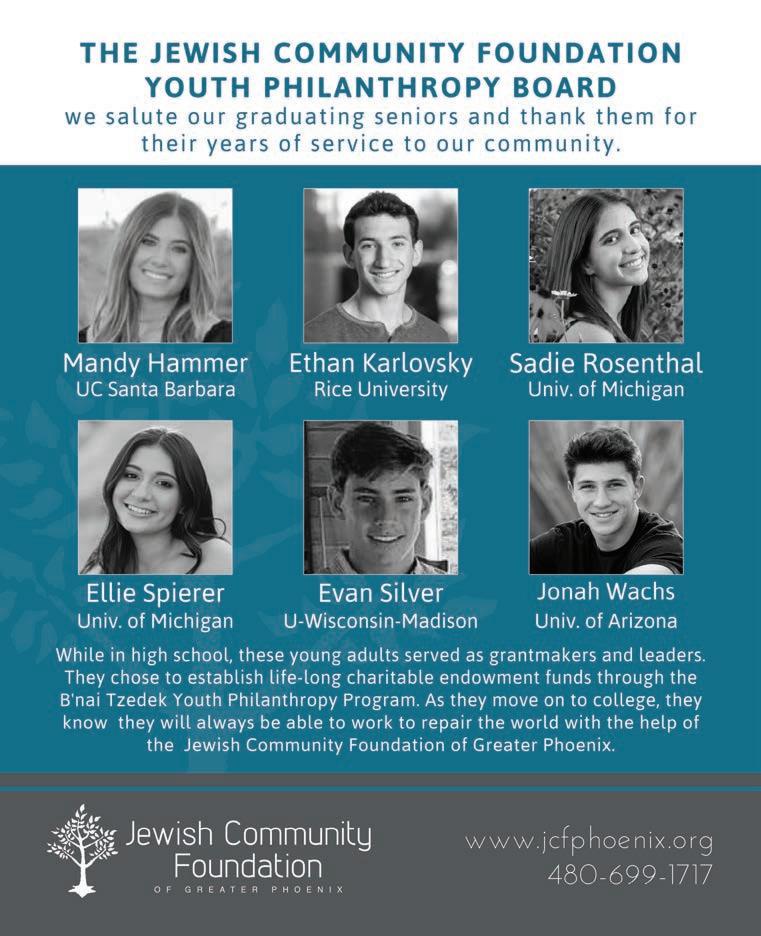
Paul Rockower, JCRC’s executive director, said the organization stands in “solidarity, and prays for Israel’s safety and security during these difficult times.”
Rabbi Shmuly Yanklowitz, president and dean of Valley Beit Midrash, sent love to those in Israel “tragically sleeping in fear with your children in bomb shelters” and added “May we all continue to pray for, and work towards, peace, security and dignity for all.”
JNS.org contributed to this story.
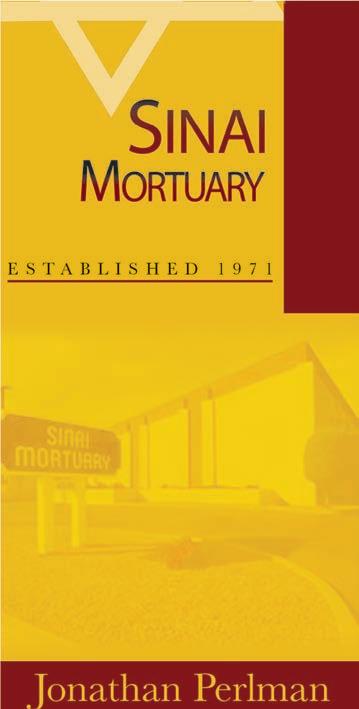
"WE PRAY, ABOVE ALL, FOR PEACE AND TRANQUILITY WITHIN THE LAND OF ISRAEL."
Arizona’s Holocaust education bill seemed like a sure thing. But that may no longer be the case. The state legislature’s session is coming to a close, and as of Tuesday, May 18, the fate of the bill remained in limbo.
The bill hit a snag in the State Senate, where Sen. Paul Boyer (LD-20) advocates including an amendment that contains the International Holocaust Remembrance Alliance’s definition of antisemitism into the bill.
“Passing the bill without the IHRA definition would leave our legislative intent unfulfilled and vulnerable to exploitation,” he said.
But Arizona House Rep. Alma Hernandez (LD-3), who first introduced the bill in January 2020, said including the IHRA language threatens the bill’s bipartisan support and further delays something that has been “agonizingly close for three years.
“Proponents of the IHRA definition, of which I am one, should run separate legislation, as opposed to attempting to seize this bill,” she said.
Adding IHRA language to the bill would restart the vetting process, and the push comes just a year after the Senate failed to show broad support for IHRA.
The Holocaust education bill would require public schools in Arizona to teach students about the Holocaust and other genocides at least twice between grades seven and 12. It stalled in Arizona’s Senate last year when COVID-19 shut down the legislative session. Hernandez reintroduced the bill in January 2021. It unanimously passed out of the House Feb. 4.
According to the Phoenix Holocaust Association and Arizona State University academics, 15 states require Holocaust education by statute.
IHRA defines antisemitism as “a certain perception of Jews, which may be expressed as hatred toward Jews. Rhetorical and physical manifestations of antisemitism are directed toward Jewish or nonJewish individuals and/or their property, toward Jewish community institutions and religious facilities.” The definition is not legally binding and is accompanied by a list 11 examples of antisemitism to guide the application of the definition, including some forms of anti-Israel speech.
Adding that language into this bill “makes perfect sense in the abstract,” said Jacob Millner, American Jewish Committee’s associate director of its regional offices. But the amendment’s late introduction to the bill, which adds controversy to
an otherwise non-controversial bill, threatens to “imperil” its passage, he said in mid-April.
“While we support the IHRA definition in Holocaust education as a general matter, we do believe that it’s better to pass an otherwise sound Holocaust education bill without IHRA than to not have a Holocaust education bill,” Millner told Jewish News.
The Phoenix Holocaust Association, Christians United For Israel, the Jewish Community Relations Council of Greater Phoenix and Arizona Teaching the Holocaust have taken a similar stance in advocating for the passage of the Holocaust education bill without the IHRA language. Those organizations intend to work on separate IHRA legislation down the road.
Last January, Hernandez introduced a bill focused on antisemitism that would have codified the IHRA definition into Arizona law to be used by state officials when investigating and tracking crime and discrimination.
“We ran the IHRA definition last year that had 82 co-sponsors in the House and 33 co-sponsors in the Senate,” Boyer said. “Having 82 co-sponsors demonstrates overwhelming support, and my question to anyone who would oppose adding IHRA to Holocaust education, is what has changed since last year that you can no longer support it?”
That bill started out with strong support,
but it eventually tapered off. The House version passed by a vote of 52-8 and stalled in the Senate.
Boyer attributed the bill’s stall to the abrupt end of the 2020 legislative session because of the COVID-19 pandemic.
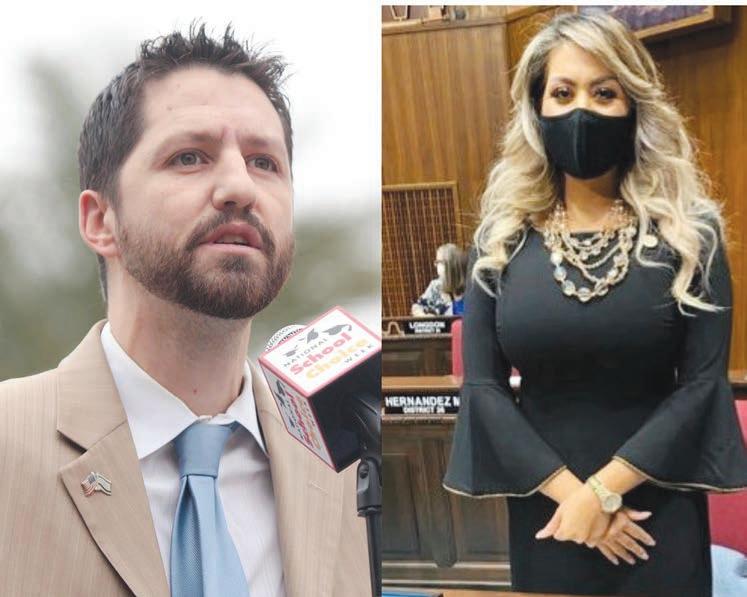
But Hernandez attributed the bill’s stall to a lack of support.
“Last year we learned that the IHRA definition did not meet the critical number of 16 in the state Senate to ensure passage, however, the Holocaust education bill had nearly unanimous support,” she said.
Michael Beller, co-founder of ATH, said the bill lost support as lawmakers and special interest groups learned details.
“They were trying to modify the criminal statute,” Beller said. “It didn’t have the support of Republicans or Democrats. It was not a bipartisan bill and it fell flat.”
There was also some controversy around the IHRA definition nationally at the time, which muddied the waters in the state legislature. In December 2019, former president Donald Trump signed an executive order focused on antisemitism on college campuses, instructing agencies to “consider” the IHRA definition when investigating complaints of discrimination under Title VI of the Civil Rights Act of 1964.
The move was met with praise from some groups and criticism from others, including the lead drafter of the definition, Kenneth Stern. In response to the executive order,
Stern said in a December 2019 article in the Guardian that the definition had been weaponized to chill free speech on college campuses.
During the current legislative session that began in January, not one bill related to IHRA was introduced, Hernandez said.
“We, as a community, have a responsibility to educate people about the importance of the IHRA definition, but now is not an appropriate time,” Hernandez said.
The state legislature’s session is coming to a likely close in the next two weeks.
“To attempt to amend this language now would only feed into the existing tension and likely kill both the Holocaust education and IHRA language,” she said. “I invite those pushing for the IHRA definition to sit down and work with me in the interim to educate our colleagues to identify 16 senators who would support this bill.”
Jake Bennett, director of policy and legislative affairs at the Israeli-American Coalition for Action, said it is “misleading to suggest that there is anything contentious about including a consensus definition that has been strongly embraced by the U.S. government, including the Biden administration, and countries all around the world.”
Not including the IHRA definition in the Holocaust education bill would create a “strong chance” of seeing Holocaust education “corrupted,” he said. He added, “it is absurd to suggest that concern about antisemitism is a matter separate from rather than inherent to Holocaust education.”
But others agree with Hernandez’ decision to keep the bills separate.
PHA President Sheryl Bronkesh, who has been working for the past three years with Hernandez and other groups to see the Holocaust education bill through, said time is of the essence.
Ten area Holocaust survivors died last year.
“All I know is what I want, which is this Holocaust bill to finally pass while I have the survivors who’ve worked so hard on it to still be alive,” she said. “Every time a survivor dies, it’s a dagger in my heart. And I think, ‘Oh, there’s one more person that isn’t going to see this accomplished in their lifetime.’”
She added that the Holocaust bill also includes teaching about other genocides and that it would be unfair just to include antisemitism into that individual legislation.
“I truly don’t understand what’s holding them (Boyer and the amendment’s supporters) back from having their own bill, and allowing the Holocaust education bill, which is so close, to get a vote in the Senate and to get approved on itself,” she said.
Bronkesh surveyed the 20-member PHA board April 20, and found the vast majority, 19-1, favor moving the Holocaust education bill forward without the IHRArelated amendment.
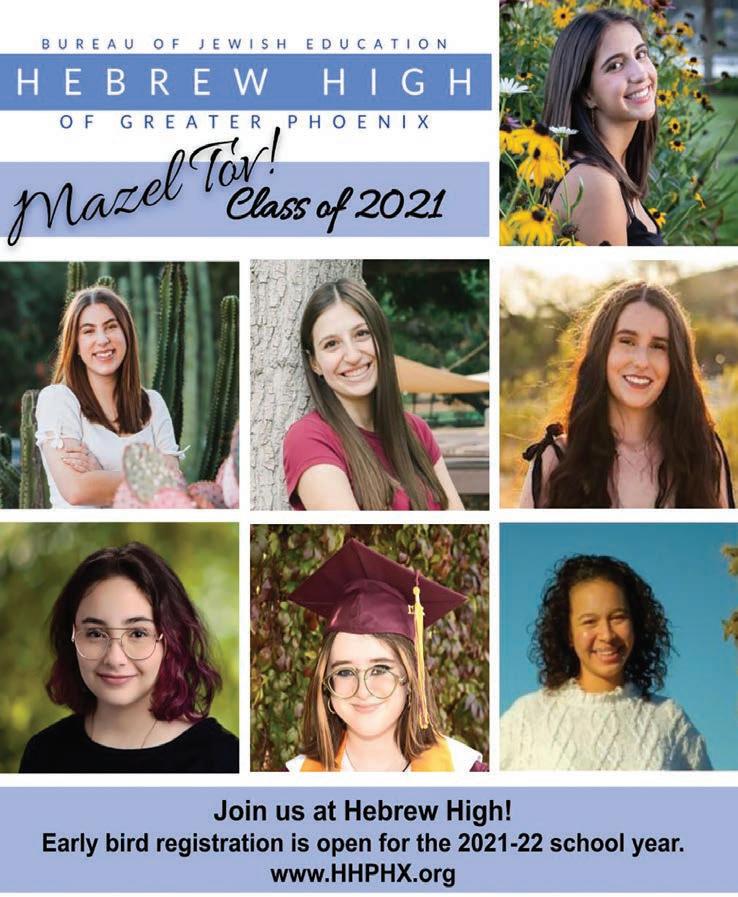
Boyer said passing the bill without grounding it in the IHRA definition would “create a real possibility of seeing the Holocaust education curriculum corrupted in ways that could ironically boost contemporary antisemitism rather than combat it.” In support of that idea, he pointed to California’s recent passage of its Ethnic Studies Model Curriculum.
“One need look no further than the unrelenting attempts to turn California’s Ethnic Studies curriculum into a vehicle for antisemitic propaganda. How long will it take for antisemitic predators to show
“While we do support the use of the IHRA definition in a variety of contexts, we believe there are more appropriate avenues to address the public policy in Arizona statutes in the future without causing unnecessary risk to current Holocaust education initiatives,” Rockower said.
Beller echoed Rockower’s concern, saying the amendment would make “a nonpartisan issue partisan.”
Tammy Gillies, the Anti-Defamation League’s regional director in Arizona, said the organization also recommends the Holocaust education bill move forward without the amendment, but is not looking to work on IHRA down the road.
“Certainly the IHRA definition serves a useful purpose, but we’re not looking for it to be codified into law,” she said.




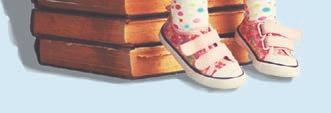
Multiple Holocaust survivors testified on the bill and have been involved in the legislative process.
If the bill does not pass this legislative session, it would be the second year in a row Arizona fails to have a Holocaust education mandate.
up wishing to invert the memory of the Holocaust with their comparisons of Israel to the Nazis?” Boyer said.
Jewish activists had criticized the first draft of the curriculum in 2019 for excluding and discriminating against Jews. But a reworked version passed in March with support from some of the Jewish activists that had denounced the earlier versions.
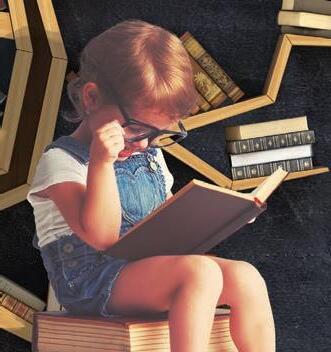
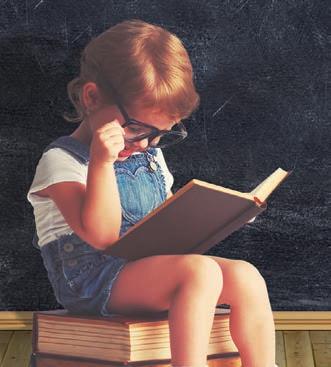


Ari Morgenstern, senior director for policy and communications with CUFI, said the group supports Holocaust education legislation and the IHRA definition.
“Depending upon the circumstances, the two work together quite nicely,” he said. “In Arizona, it is our understanding that it would be best, based on the timeline, to advance appropriate IHRA policy separate from the Holocaust education bill.”
CUFI was a strong advocate for Trump’s executive order, and is in favor of a wide adoption of the IHRA definition. However, he said that in this instance it doesn’t make sense to amend the bill.
“The strategy for success needs to take into account local considerations,” he said. “And the short time frame in Arizona, to our knowledge, does not lend itself to an amendment to the Holocaust education bill at this time.”
Paul Rockower, executive director of the JCRC of Greater Phoenix said the amendment jeopardizes the bipartisan support of the Holocaust education bill.
A push for a similar amendment emerged last year before COVID-19 shut down the legislative session.
The Arizona Board of Education added Holocaust education to its administrative code last October. Hernandez briefly thought that might make her bill’s reintroduction unnecessary, but the governor’s office reached out to encourage her.
The bill aligns with Gov. Doug Ducey’s focus on expanding and increasing civic education, according to C.J. Karamargin, the governor’s spokesman.
“Knowing about a human tragedy on a scale like that is absolutely fundamental,” Karamargin said.
He declined to comment on the push to include an IHRA amendment, saying the governor’s office does not comment on pending legislation.
Hernandez said she has made it her mission for the past three years to ensure Arizona’s public schools teach the Holocaust.
“I made a promise to survivors from Pima County and from across the state to get this done,” she said. “Now is the time to pass the Holocaust education bill.”
The bill appeared on the agenda for a Senate vote Monday, May 17, but nothing happened.
“The bill for the 4th time this month was pulled and not voted on,” Hernandez posted on Twitter Monday night. “It’s extremely frustrating.” JN
"I MADE A PROMISE TO SURVIVORS FROM PIMA COUNTY AND FROM ACROSS THE STATE TO GET THIS DONE. NOW IS THE TIME TO PASS THE HOLOCAUST EDUCATION BILL."

Over the past decade, Rabbi Dean Shapiro of Temple Emanuel of Tempe has always shown up for the people who needed him.
“I have learned how to listen. And how powerful being heard is for people. And I have learned how much pain many people carry — pain of all sorts,” Shapiro said.
He’s been there for congregants both inside the synagogue and in their homes. He’s led services, classes, prayers and he’s been part of many jovial and deep conversations.

But his time at Temple Emanuel comes to an end May 31. It felt to him like the right time for a change.
“There’s a lot going on,” Shapiro said. His partner and 12-year-old son have been living in New Zealand — where his partner is from — since October. The couple wanted to have a life that more closely resembled what they had before the pandemic, and New Zealand has all but eliminated COVID-19, with 2,600 cases and 26 deaths reported since early last year, according to a New York Times database.
In his letter to Temple Emanuel’s congregation last October, Shapiro wrote that the last couple of years “have been intense and draining,” and he felt he needed to reprioritize his life in order to be a “whole, healthy person.”
He isn’t ready to share what his next chapter holds, but he is proud of what he is leaving behind.
He takes pride in all the kids who became b’nai mitzvah, who became leaders of the congregation and “who learn to think for themselves and express their own ideas and make the transition from childhood into adulthood,” he said.
He is also proud of the programming he was part of, like Temple Emanuel’s Sacred Aging Group, which he called “a place of thoughtful reflection, conversation and preparation for Temple Emanuel members who wanted to explore the realities of aging.”
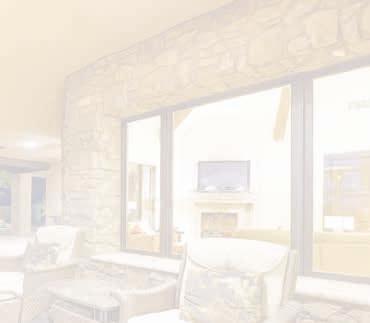
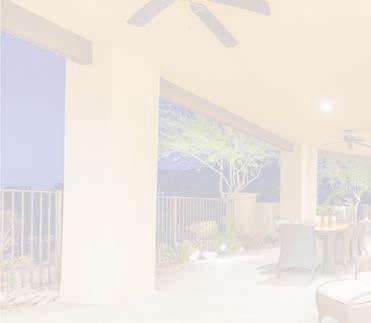
And he’s loved studying Torah with the community and “accompanying new Jews to the mikvah, seeing the joy on their faces and the water in their hair as they emerged from the living waters as Jewish people.”
He has also enjoyed the music the congregation made together. “It’s been beautiful to sing with our community and enjoy the rhythm of life together,” he said.
The congregation planned several events to celebrate his contributions to the community, including a drivethrough breakfast, a special Shabbat service and a Havdalah service at South Mountain. A committee of volunteers put together a collection of about 250 photos, memories and messages for him.
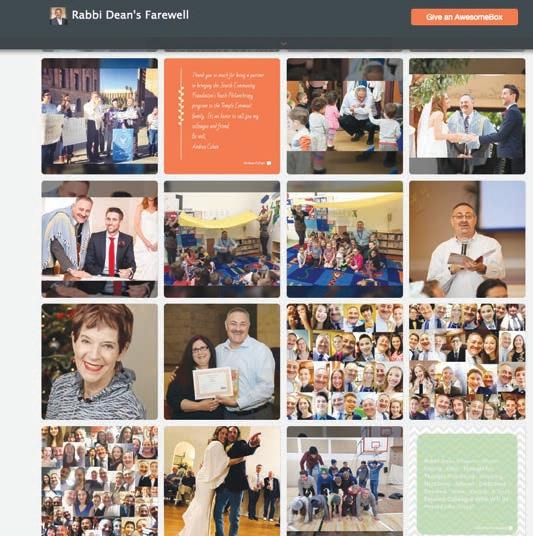
Personal notes to Shapiro came from congregants and community members, as well as other rabbis and faith leaders.
Rachel Myland wrote of Shapiro that he is “one of those rare spiritual leaders who has the ability to take prayer seriously without taking yourself too seriously.”
Gerri Chizeck wrote, “You make a difference in so many people’s lives, and you made one in mine.”


Amy Hummell, executive director of Gesher Disability Resources, has worked with Shapiro since 2010, when he began leading Simchat Shabbat services during the summers for Gesher members.

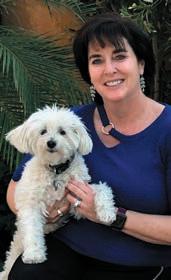
“He would always make sure that our members knew they were important,” she said, to him as a person, as a rabbi and to the Jewish community. “He feels so comfortable with all people. I don’t think he’s ever really truly seen a disability.”
Carlos Galindo-Elvira and Shapiro worked together for several years during the annual Latino-Jewish seder.
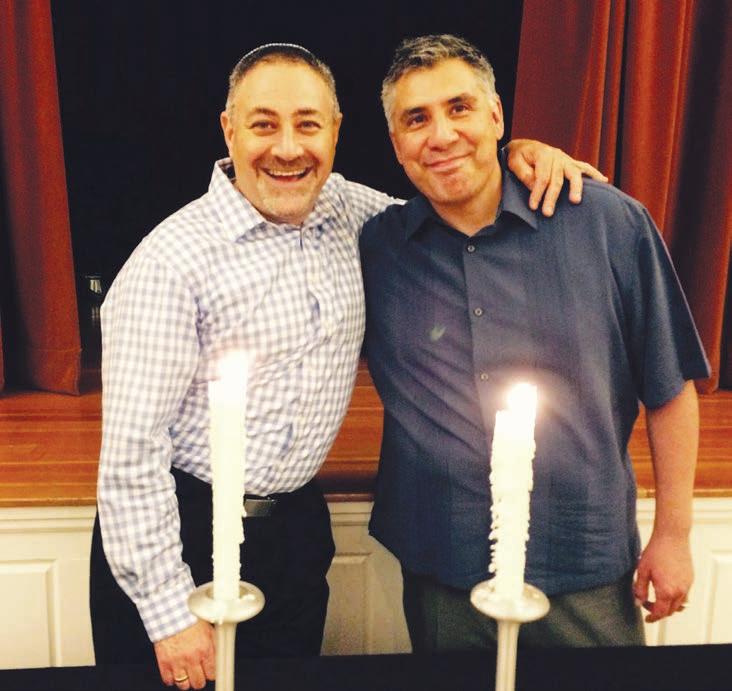
“I am thankful for Rabbi Dean Shapiro, a person of goodwill and goodness, who shared himself with diverse communities to promote dialogue and understanding,” Galindo-Elvira said. “Mostly, I feel privileged to have seen and heard him lead the annual Latino-Jewish seder in English, Spanish and Hebrew. On a personal level, his advice helped to create a new path for me and sparked a new way of thinking that was lifesaving.”
Ellen Friedman Sacks, executive director of Jewish Free Loan, worked with Shapiro when he was a member of JFL’s board of directors from 2014 to 2016.
“We will miss him and the positive impact he has had on our community and wish him only wonderful things ahead,” she said.
Shapiro said he has been overwhelmed by the love and trust Temple Emmanuel’s community has placed in him over the years.
“They have shared their stories and their pain with me and asked me to be part of their lives in the most tender moments,” he said. “I have shared the joy of new parents, as they brought their baby into the covenant and heard people’s hopes, dreams and fears. And that is an extraordinary privilege.”
Hillel Foundation, Michelle Blumenberg is leaving her position as executive director in June.
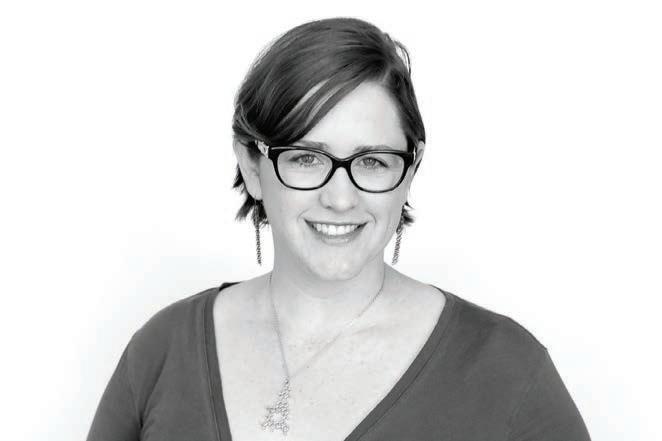
“It’s time for me to explore new opportunities, and for Hillel to bring in a different leader and build on my work,” Blumenberg said.
Jessica Emerson McCormick, currently the inaugural director of the Jewish Emergent Network, will be filling Blumenberg’s position. McCormick was previously the communications director at Sinai Akiba Academy in Los Angeles, and also worked in business and legal affairs at a major motion picture production company and as a journalist covering the entertainment industry. A published and award-winning fiction writer, poet and playwright, Jessica has been a repeat visiting artist at the Brandeis-Bardin Collegiate Institute.
“At each step of my career I’ve had an eye towards coming home to Tucson and finding a way to give back to the Jewish community that set me on my path,” McCormick said, via email. “At the same time, my career in Jewish education and field building helped me realize that the work of my heart is to lift up the voices and spirits of the students who will lead our future. I am so excited to roll up my sleeves and get to work.”
Jessie Rubenstein is new religious school director at Temple Emanuel of Tempe

Jessie Rubenstein will become Temple Emanuel of Tempe’s new religious school director this summer.
Between 2013 and 2015, Rubenstein taught Hebrew to third graders at Temple Emanuel. She also created a curriculum related to Jewish ethics for ninth graders. Rubenstein’s first day will be in June She is set to graduate from Hebrew College this month with a master’s degree in Jewish Studies and Jewish Education. In graduate
to this community and I look forward to providing the families and staff at Temple Emanuel with the same warmth and support which I was given,” Rubenstein said.
Rebecca Weinstein, Temple Emanuel’s managing director, said Rubenstein’s enthusiasm, passion for Jewish learning and expertise as a hands-on educator made her the right fit for the job.
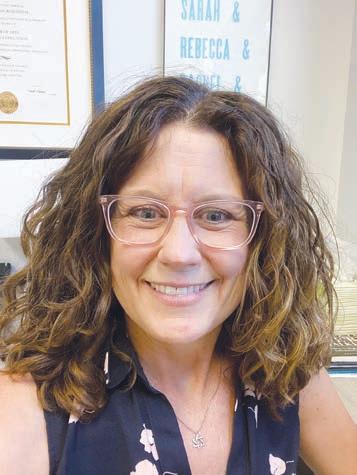
CBI educator to serve second term as VP of Association of Reform Jewish Educators
Stacy Rosenthal, senior director of education and youth engagement at Congregation Beth Israel, recently earned a second term as vice president of the Association of Reform Jewish Educators.
“Being part of a professional organization is one of the most meaningful things I have done to help me become a better educator at Congregation Beth Israel,” Rosenthal said. She believes it is an exciting time to be in the education space, as the pandemic unleashed cultural and technical innovations.
“We have the opportunity to leave behind what no longer serves us and take the lessons of the pandemic into consideration when determining how to best serve our learners moving forward,” she said.
During her second term she is keen to expand partnerships with the educational organization. “They build the foundations for Jewish learning and deserve recognition and respect for their work with our youngest learners,” she said.
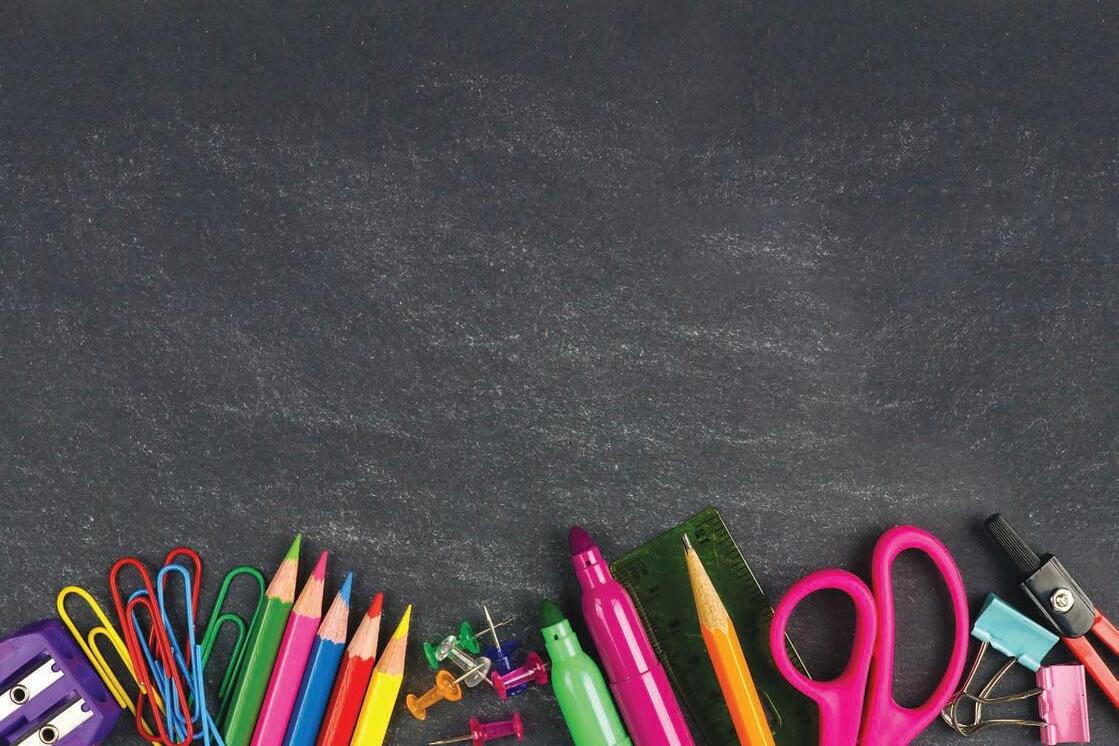
ARJE has more than 800 members and provides educational opportunities and networking for Jewish educators. JN
For more information on ARJE, visit reformeducators.org or contact Rosenthal directly at srosenthal@cbiaz.org.
Wednesday, June 2nd 11:00am
Imagine life with a complete support system. It’s like an extended family working together and making things easier. Meals, prescriptions, appointments, personalized care, even a hobby or two, all taken care of— with smiles at every turn. Having it all, and an extra hand when you need it. That’s Assisted Living at La Siena. Join us for an informative presentation on senior living and the exceptional services offered. Afterwards, take a tour and enjoy a delicious lunch.
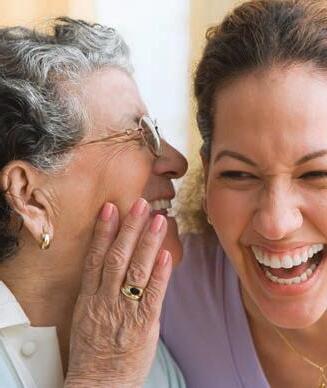
To RSVP for this socially-distanced event, please call 602.635.2602.
AZ
Blake Gailen, center fielder for Team Israel, is a little superstitious. If he has a really good game one night, for example, he’ll probably eat the same lunch again before his next game. That type of ritualistic behavior is not unusual for baseball players, he joked, adding that some are even superstitious about being superstitious.
“We’re a different breed,” Gailen said. Team Israel, too, is different. It’s the first baseball team the country has sent to the Olympics, and the first team in any sport Israel has sent since 1976. Prior to winning the 2017 World Baseball Classic, Israel was ranked 41st in the world. In 2019, Israel won the European Baseball B-Pool competition and then the Africa/ Europe 2020 Olympic Qualification tournament. Their journey to Tokyo has been a Cinderella story.
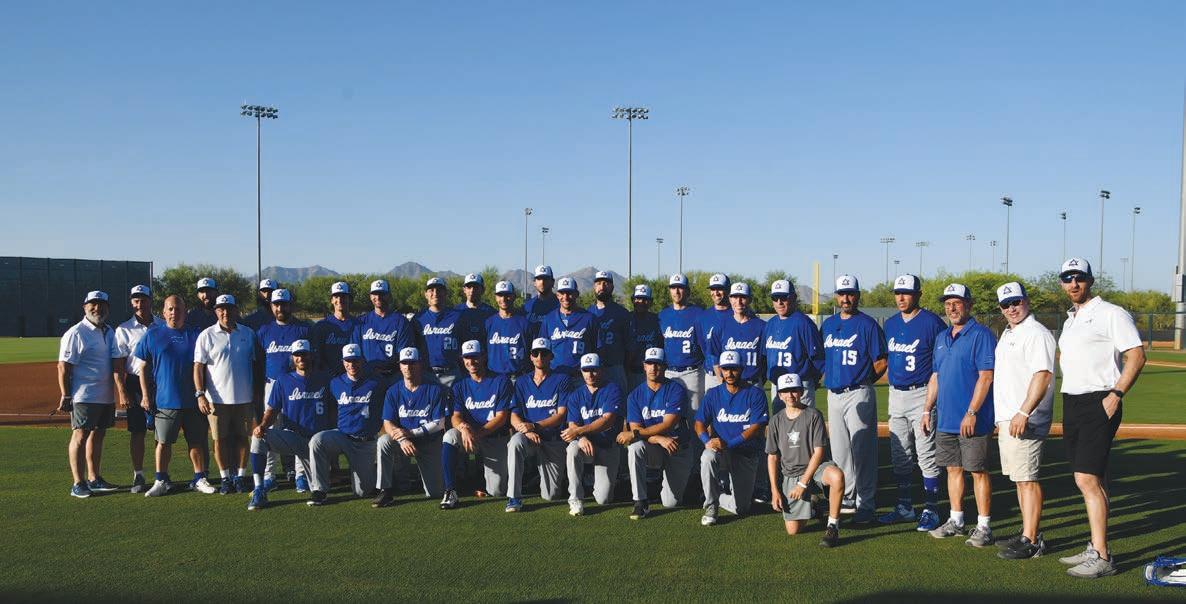
“We epitomize David versus Goliath,” Gailen said. “We weren’t supposed to be here.”


Another change in this team’s roster is that every player is an Israeli citizen. Although they live in the United States to make a living playing baseball, most of them made aliyah in the last few years.

Gailen never expected to make aliyah, but he didn’t expect to be an Olympian either, he laughed. But being part of this team changes a person.
“I feel so much closer to my culture and being Jewish,” he said. “I’m grateful for that.”
Gailen spoke to Jewish News at a Jewish National Fund-USA fundraising event for the team on May 11. The players, coaches and staff were in Phoenix to train in an Arizona Diamondback facility, which was offered to them by the Diamondback organization at no cost.
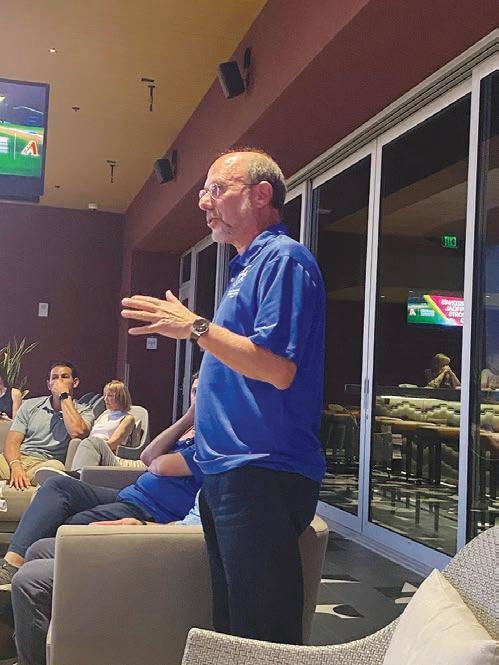


JNF-USA and its Project Baseball are raising funds to help cover any of the team’s expenses not paid by the Israeli Olympic Association. The fundraising
goal is $1 million and since March 25, they have raised a little more than $302,000.
“If we didn’t raise a dime,” said Lou Rosenberg, JNF-USA’s executive director in Los Angeles, “the team would still go.” Rosenberg is the lead professional responsible for Project Baseball and is excited about the organization’s role in bringing the sport to Israel by building fields.


“People know JNF for trees and reservoirs but we are your voice in Israel,” Rosenberg said. “We’re improving infrastructure and life in Israel on a daily basis — and we do baseball.”
He is already imagining what it will mean for the spirit of Israelis and all Jews to hear “Hatikvah” played should the team win gold. “Promoting the team and Israel on the world’s largest stage would be amazing,” he said.
On May 12, Rabbi Bonnie Sharfman of Congregation Kehillah and the Consulate General of Israel in Los Angeles hosted a Zoom event to celebrate the team while it trained in Phoenix.




Having grown up a fan of the Boston Red Sox, Sharfman joked that she’s no stranger to heartbreak. But she has high hopes for Team Israel’s chances in the Olympics.
“They’re a team with a lot of heart, and that goes a long way in baseball,” Sharfman said, adding they also have a lot of talent.
Wednesday night’s event was the most fun she’s had in a year and a half, she said. With the hardships of the past 18 months combined with the violence in Israel right now, Sharfman said being able to listen to the team talk about a plan for the future meant a great deal and gave the Jewish community a sense of pride.
Since 2014, Project Baseball’s goal of bringing America’s pastime to Israel by building more baseball fields in Israel and
“It’s a hope to cultivate a new generation of kids who will interact with each other and use baseball to grow together,” she said. “That makes it beautiful.”
And optimism for the team’s chances abounded at JNF-USA’s event, too.
“We’re going to be in the last game,” said Peter Kurz, the team’s general manager. And he reminded people that the important thing to remember about the team is that they’re all Israeli, joking that many Israelis still say there’s no baseball in Israel.
In a sense, that helps. They are underdogs going into the Olympics, and “there’s no pressure when you’re an underdog,” he said.
Ty Kelly, Team Israel’s third baseman, also thinks the team’s chances are good, but mostly he’s just ready to get to Tokyo. When the team qualified it all felt surreal, he said. Then COVID happened, and the Olympics were put on hold.
“I still don’t feel it’s real yet,” he said, “and I won’t until we’re there.” JN
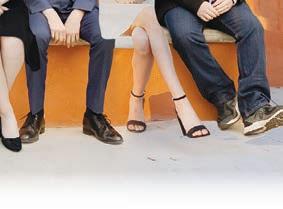
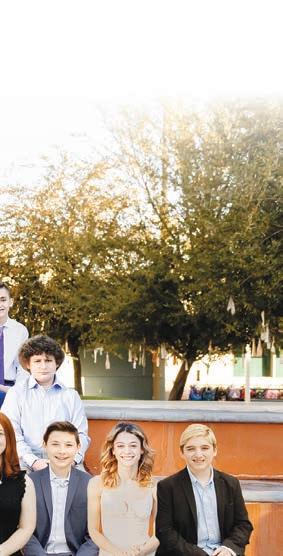
In a show of support for Israel, dozens of people gathered behind Menachem Mendel Academy in Scottsdale on Wednesday, May 12. Organized by the Israeli American Council, the “Stand with Israel” rally was one of 19 held in cities across the United States following days of escalating violence in the region.
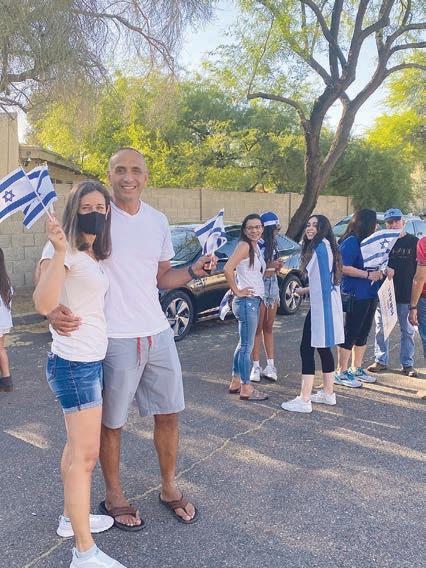
In a casual and upbeat atmosphere, people cheerfully greeted one another and chatted in small groups in the late afternoon sun. Some held homemade signs supportive of Israel and others waved American or Israeli flags, while some simply draped large Israeli flags across their shoulders tied loosely at their necks. Many people had children in tow and seemed to know one another.
Nobody seemed worried about their personal safety, although one off-duty Phoenix police officer, Mike Hillman, was on site. He said he did not expect any problems.
Kathleen Darrow of Scottsdale came to show her support and “to stand with others who stand with Israel,” she said.
Shiry Sapir, the owner of the property, was happy to let it be used for the event, because, as an Israeli, “I have skin in the game,” she said.
Sapir thinks the rally can raise awareness of the violence happening now and encourages everyone to see that “we’re all on the same side,” she said. But she is frustrated that “Israel gets a lot of bad press,” she said, “but we don’t want one child on the Gaza side dead.”
The Scottsdale real estate agent is now just hoping for a ceasefire. To that end, Israeli Defense Minister Benny Gantz called on Arab and Jewish leaders May 13 to “cool down the territory and to stop the incitement that is tearing Israeli society apart from the inside,” reported JNS.org.
Erez Kessler, a musician and preschool teacher for Martin Pear Jewish Community Center, also came out to show support for his home country. He has family and friends throughout the country and said that he’s worried for all of them.
Kessler handed out American and Israeli flags to people arriving that he got from the IAC.
He, too, wants to change what he sees as the world’s negative perception of Israel.
“We want peace and we’re all about quiet,” he said, “but we also want Israel to know they’re not alone.”
Reading news reports highlighting the large number of Palestinians injured and killed against the much smaller number of injuries and deaths on the Israeli side, Kessler is troubled that the point that both sides have suffered becomes lost in a numbers game.
“There is hurt and pain on both sides,” he said.
Myra Shindler, executive director of the Bureau of Jewish Education of Greater Phoenix, came out to show her support. “BJE was happy to let people know how proud we are to support Israel,” she said, and added that several of the people there told her they had learned of the rally from BJE’s newsletter.
Speakers included Rabbi Mendel Lieberman of Ashkelon, Rabbi Pinchas Allouche of Congregation Beth Tefillah and Rabbi Arthur Lavinsky, retired Navy chaplain, freelance rabbi and former president of the Board of Rabbis of Greater Phoenix.
“I wish more Jews would come out for Israel like they do for every other cause,” Lavinsky told Jewish News.

But Jake Bennett, director of policy and legislative affairs for the Israeli-American Coalition for Action, a partner of the IAC and an organizer of the event, said he was pleased with the turnout after only 24 hours notice.
After the rally, there was a cohort that walked together to Scottsdale Road waving Israeli flags. JN
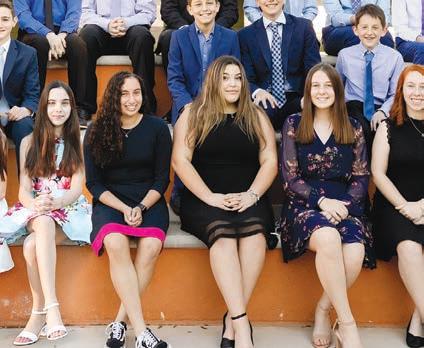
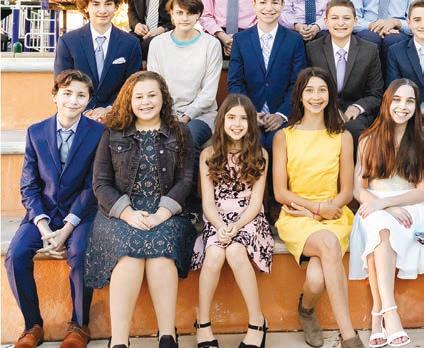
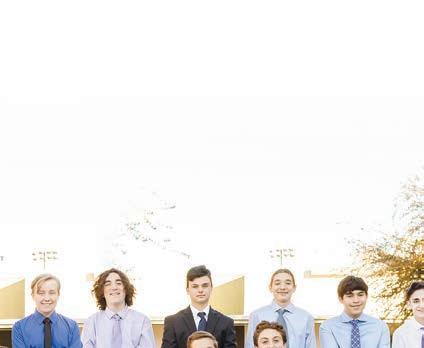
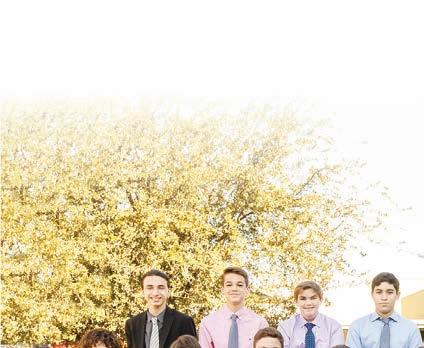
Emerson
Josh Liber thought he knew everything about horses. They have been a big part of his life since he was 8 years old, when he dreamed of being a cowboy. He took riding lessons, competed in rodeos and moved to Kentucky to immerse himself in the world of horse racing.
When a therapist told him horses could also help him finally beat his alcohol and drug addiction, another big part of his life, he didn’t believe it. “It’s going to take a lot to convince me that horses are communicating with me and are going to help me with my emotions and stability,” he said.
Still, he took a leap of faith and went to Soberman’s Estate in Cave Creek because it offered equine therapy. Now, not only is he convinced, but he’s becoming an equine therapist to help others struggling with addiction. It’s the kind of success story Soberman’s founder, Mitch Prager, envisioned when he opened the center in March 2019.
“I built Soberman’s Estate for men like Josh,” said Prager, via email. “Josh had been to treatment and to detox too many times prior to learning of Soberman’s, and we created an individualized treatment plan centered around equine therapy. Now, he is proof that men can enjoy a better life for the rest of their lives.”
Prager struggled with alcoholism in the past and also lost both his brother and a close friend to addiction. He wanted to create a treatment center with an all-handson-deck mentality. He toured roughly 50 residential treatment centers around the country before he opened Soberman’s. He discovered that while there’s no panacea, providing enough types of therapy, including equine therapy, is key.
The idea behind the relatively new therapy is that horses are sensitive to other creatures’ feelings and can respond to them. The animals offer non-judgmental relationships and immediate feedback. They also allow people who are uncomfortable sharing their feelings in a traditional setting a way to build trust.
Equine therapy might seem out there to some, but for residents like Liber, it works.
“I’ve dealt with horses most of my life but never took the time to recognize them as a friend and companion or anything more than as a way to make a living,” said Liber.
Janice Story, Soberman’s equine therapist, said addicts see the benefits of being with horses almost immediately. “I put these guys in with the horse and they start crying within 15 minutes,” she said. “It lets them feel.”
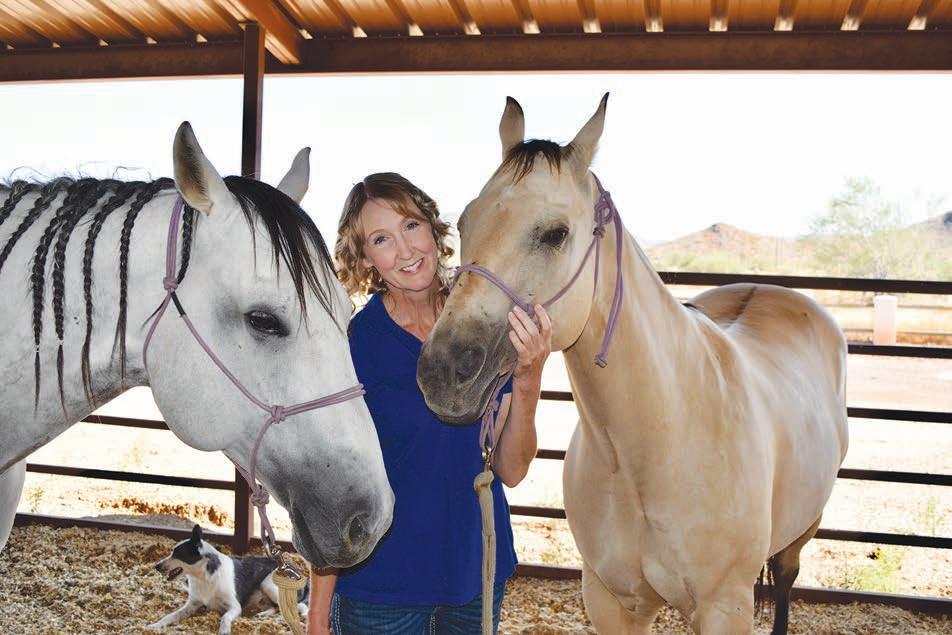
Horses create a safe environment for people who may not want to talk about their trauma or may not even know what they are feeling. Horses can act like a mirror and show them how they feel, which is how they can start to work through it, she said.
Before Liber arrived at Soberman’s, “I was at a point of complete despair,” he said. “Even my mom wasn’t taking my calls.” But his father employed him, and his parents got him to Scottsdale Detox. Liber was told that he needed treatment, but having been many times in his life already, he didn’t want to do it again. He told his therapist at Scottsdale Detox that he would only go if he could ride horses.
He was sure there would be no such treatment center near Phoenix. But he was wrong. “My therapist said
she found ‘the most beautiful place I’ve ever seen,’ and asked if I would give it a shot. And I said yes. A deal’s a deal. But I was really pissed,” said Liber.
When he first arrived, he felt “wounded and hurt and was so scared.” Because of his addiction he couldn’t take medicine for his diagnosed bipolar disorder or ADHD. “I was in the raw when I arrived — I was feeling everything.”
But when he went to a session with Story and talked to the horses, “I felt heard. I felt understood. I felt seen. I felt loved. All in one session with her,” Liber said.
Story said it’s all about letting the horse take over, and Liber felt that was what happened in his sessions.
“If you give yourself and the horse the opportunity to meet on a level playing field, eye to eye and nothing vocal, I would bet most people wouldn’t last two minutes without wanting to cry,” he said. “They can see inside our souls — they see you when you don’t even know they’re looking.”
Story grew up around horses and noticed how they helped people feel better. She didn’t know why, but after she became a Reiki master, she started using horses with her clients with great results. She started the certification process for equine therapy but thought the existing programs didn’t put the horse at the center of things. She and a partner started their own equine-assisted coaching course last year that put the horse “back in the driver’s seat,” she said.
At one point when he was living in California, Liber became a registered chemical dependency counselor but never followed up to become certified. Now, he’s in Story’s course for equine-assisted coaching.
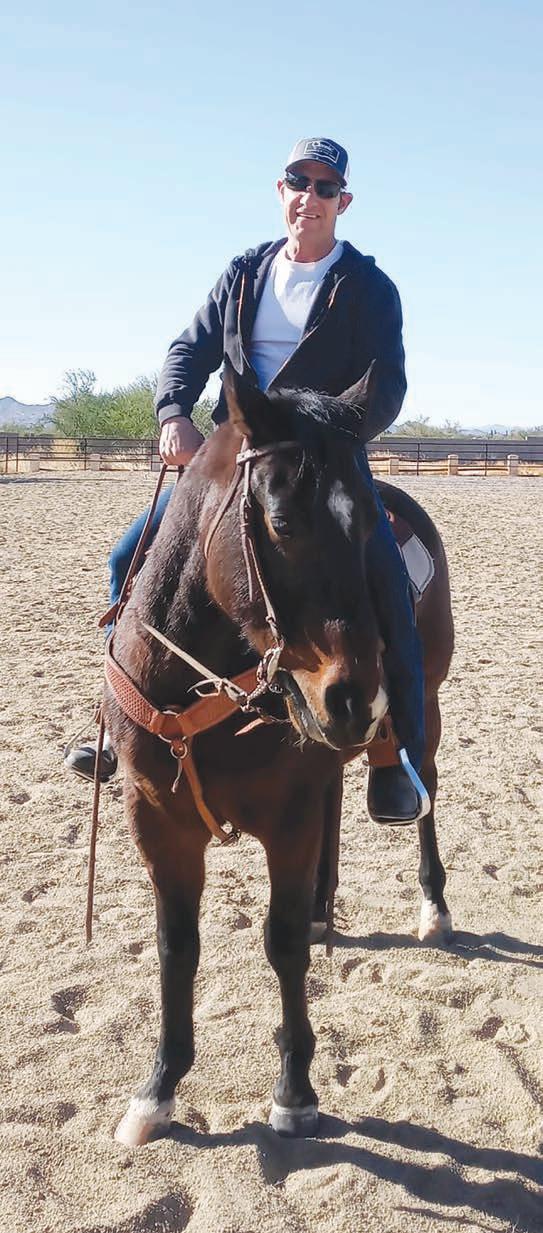
For Prager, being Jewish made his addiction more difficult to come to terms with. “It was considered a shanda,” Prager said. But he has long since come to realize that as with any disease, “it does affect Jewish people equally” even though “maybe we’re kind of ashamed to say that to the public.”
Liber can relate. The first time he got drunk was at his cousin’s bar mitzvah. Later, he was drunk at his own and he remembers drinking at Passover seders and even trying to hide the fact he wasn’t sober during High Holiday services at different points. Like Prager, his Jewish family had a hard time coming to terms with his addiction, but he said they also have been essential to his recovery.
Now Liber lives close to his parents. “It’s easier with a Jewish mom to live close and not have to deal with 50 phone calls,” he joked.
Liber’s father bought him his first horse for his bar mitzvah. He named him Shlep and said the horse shlepped him everywhere. He had him until he was 26, marking the longest relationship of his life other than that with his parents and sister. Recently, he’s bought a horse called Poco whom he spends most of his down time with. Poco will assist Liber as an equine therapist.
“He has the softest eyes you ever saw,” Liber said.
“Every time I think about the horses, I would think about this piece in my past that was so unhappy, and it was connected to the horses,” he said. “It was a hard place to be. I couldn’t find the happy place, the 8-yearold cowboy place. Janice took me back there in a way that was so gentle and loving.” JN
Tim Eckstein is set to become the board chair for the Jewish Community Relations Council of Greater Phoenix. He takes the place of Adam Goodman, who will remain on the 2021-2022 executive committee. Goodman is joined on the committee by Rabbi Bonnie Sharfman as vice-chair, Vicki Cabot as treasurer and Alan Zeichick as secretary.
“I am extremely excited for the opportunity to help guide the JCRC,” Eckstein said, via email. “Under the stellar leadership of Adam Goodman, Paul Rockower and the board, the JCRC has become the go-to organization for others seeking partnership with and guidance from the Jewish community over the past couple years. I hope to build on our success.”
Eckstein is a Phoenix native and attorney, focusing on investigations and criminal defense. He has served on the boards of a number of local Jewish organizations, including Pardes Jewish Day School, American Jewish Committee (Arizona Region) and Hillel at Arizona State University.
In releasing details of the committee, JCRC said it was “grateful for Goodman’s service,” and that “he demonstrated tremendous poise and skill as he helped steer the organization’s leadership role in the Jewish community during a difficult two-year period in Arizona and throughout the country.”
Goodman said, “My ambition for the JCRC was to build strong relationships with a variety of faith and ethnic groups so that when an inevitable demagogue targets the Jews with hateful rhetoric, we will have allies who will reject that xenophobia. I am proud of our outstanding board for engaging in this important work, and it has been my honor to work with — and learn from — the skillful Paul Rockower.”
Kaylie Medansky, Temple Chai’s associate executive director, will also join the board.
Medansky said she’s “thrilled” to join the board and “feels drawn to the JCRC
mission. In particular, I feel that now, more than ever, it is important for the Jewish community in Phoenix to have a voice in the media and to collaborate with other groups to build coalitions to address community-wide concerns.”
Medansky also directs Temple Chai’s Center for Social Action and Social Justice and is the former executive director at Swift Youth Foundation, an Arizonabased nonprofit that fosters positive mentor relationships between at-risk youth and college-bound teens.
The board also includes Aaron Pratt, Carol Consalvo, Dr. Cory Shapiro, Sue Adatto, Stuart Goodman and Richard Kasper (Ex Oficio).
the forefront, this podcast touches on a variety of communications strategies, and we’ll explore today’s communications challenges and share insights, stories and strategies.”
This is HMA’s second podcast. The first was “Arizona 100,” which accompanied a newsletter of the same name. Both highlighted stories written in 100 words about business in the state. When the firm retired the newsletter, the podcast went the same way, “but we still wanted a podcast, and we rethought it so we could talk about what we do as a business,” said Fink.
She took the title from her former publisher’s column in the newsletter, because “it encapsulated what we wanted to do, which is highlight things that are important throughout the state,” she said. This podcast is the result of two months of talking and thinking through topics and goals.
Fink said the podcast is an opportunity “to share what we do in a very conversational way that’s easy to listen to. You can tune in whenever you want,” she said. She listens to podcasts herself on morning walks and appreciates how easy they are “to pop in and out of, and if you like one you can log into the next episode,” she said.
It’s a good and enjoyable way to get solid business information, she added. And because episodes are archived, people can pick and choose which topic appeals to them.
communications and public relations support to a variety of organizations in Greater Phoenix, including the Phoenix Holocaust Association, Jewish Family & Children’s Service, the Jewish Community Foundation of Greater Phoenix, the Jewish Federation of Greater Phoenix and the East Valley Jewish Community Center. She is a member of Congregation Beth Israel.
McIntyre is a cultural anthropologist and internationally recognized authority on effective communication.
The show is recorded and produced in the studio of PHX.fm, the leading independent B2B online radio station and podcast studio in Phoenix.
For more information and to listen to Copper State of Mind, visit hmapr.com.
Arizonans among top buyers of Israeli company’s masks
Even though Arizona is the 14th largest state by population, it’s one of Sonovia’s top states for sales of its face masks.
The publicly-traded Israeli company created a fabric mask coated in oxide nanoparticles, which destroy bacteria (including those that cause acne), fungi and viruses. The state of Arizona ranks seventh in mask sales to the United States.
The technology has implications for commercial use and is being applied to seat covers for public transportation, bed sheets for the hospitality industry and fashion wear, the company said.
“Copper State of Mind,” a podcast focused on public relations and marketing communications strategies. The first episode was March 15.
Abbie S. Fink, vice president and general manager of HMA, hosts the podcast twice a month with Dr. Adrian McIntyre of Phx.FM. Together they discuss public relations and its importance for businesses and organizations.
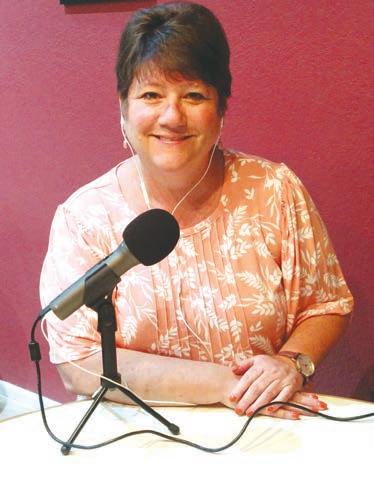
“The money an organization spends on integrated marketing communications is an investment that helps boost your brand, breaks through the noise and drives business results,” said Fink. “With that at
I am a 48 yr old divorced man with almost grown children. A software engineer in good shape (and not bad to look at 5 ft 10 & 165 lbs)
Looking for my beshert, a woman who likes to stay in shape, who is gracious, compassionate, full of loving kindness with a sense of humor!
Please respond to Melech at: agimark@yahoo.com

“It’s fun to sit at my kitchen table with my microphone and headset while Adrian’s in his home studio, and we have a conversation,” Fink said. As far as the listenership, time will tell.
“Slowly but surely our numbers are increasing,” she said.
According to McIntyre, “the podcast seems to be striking a chord with the audience and has gained 305 unique listeners. The total number of downloads is rising steadily each week — increasing by 55% in April alone.”
Fink has been with HMA since 1993 and has provided marketing
“I have no doubt that our technology will be able to neutralize any virus or bacteria that comes in contact with it,” Aaron Garzon, Sonovia’s vice president of research and development, said in a statement.
Sonovia is based in Ramat-Gan and develops anti-pathogen and anti-bacterial products as well as textiles. Lab tests have shown that the face masks can neutralize more than 99% of the COVID-19 and H1N1 coronaviruses, according to the Israeli startup’s website. The mask is also reusable and can be washed 100 times without losing its effectiveness. JN
 SHANNON LEVITT | MANAGING EDITOR
SHANNON LEVITT | MANAGING EDITOR
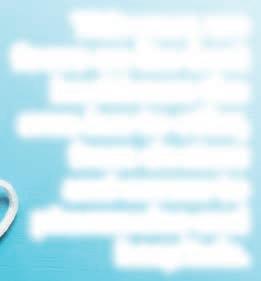


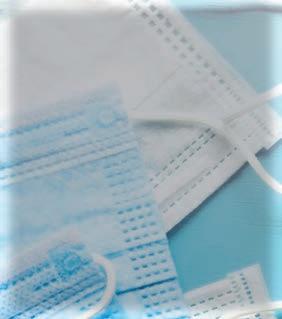


Laura Drachler had to hustle to finish one last task before she could drop off her kids at Congregation Beth Israel’s Camp Stein for the summer. On May 14, both Max, 14, and Zoe, 12, received a dose of the COVID-19 vaccine, and by the time they arrive at camp, they will be fully protected.
Drachler was disappointed last summer when CBI didn’t offer its traditional sleep-away camp in Prescott due to health and safety concerns. She always loves taking her kids to camp, because that’s where “lots of personal and social growth happens,” she said. She hoped summer of 2021 would be more normal.
Now she’s ready to capitalize on that optimism, and her kids “can’t contain themselves,” she said. “From the kids’ perspective, this is their start.”
Max and Zoe want to be with camp friends and reconnect with their Jewish identity, she said. “To be honest, I don’t know what they’ll do this summer at camp — they just want to go.”
Jason Bronowitz, CBI’s director of camp experience, said CDC guidelines will be followed and there will be limits to off-camp trips, but “our goal is to have as normal a summer as possible, while maintaining a healthy campus.”

Other local camps are preparing to get back to a more normal summer as well.


Shemesh Camp at Martin Pear Jewish Community Center won’t have any virtual programming this summer.
After garnering a year of experience dealing with COVID safety measures, Kim Subrin, chief officer of camping and family services of MPJCC, said this summer will be about getting back to camp essentials. And she feels more confident about safety this summer since every specialist on staff is a teacher with experience running programs during COVID.
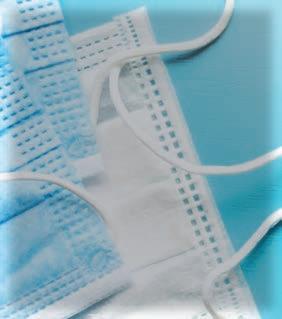

Subrin’s looking forward to offering campers Krav Maga, art, baking and even a zoologist. But mostly she’s just anticipating the fun of summer camp.
Camp: Destination, founded by Desert Jewish Academy and located on the campus of Temple Beth Sholom of the East Valley in Chandler, will be back on campus June 1 with small groups of 15 kids and two counselors.
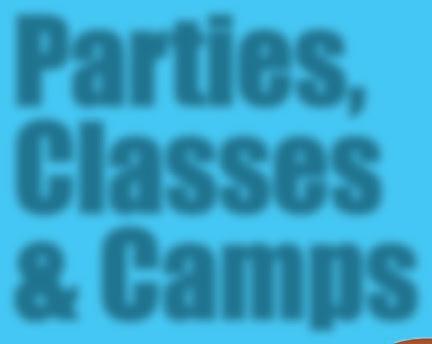





Emily Zappa, camp co-director and DJA’s head of school and teacher, is excited to welcome campers back in person. Still, she stressed that the staff will limit camper interaction and will remain on campus every day to go over protocols ensuring everyone is kept up to date as information changes.
Where campers once would have gone on field trips, this summer the subjects of field trips will come to camp. But nothing will be virtual this year.
A return to in-person camping has come with mixed reactions, said Zappa. “Everyone is super happy that we’re back on campus, but some parents are still thinking about it. But for the

And there’s an excited vibe among the staff, she said. This marks “a starting point as everyone finds a new norm.” COVID has reset things, and this summer “is kind of a reboot.”
Camp Rimon at East Valley Jewish Community Center


srael’s Operation Guardian of the Walls is the kind of military operation with which we are very familiar. The country is under an attack from Gaza, with violence orchestrated by Hamas, a genocidal terror organization. Thousands of rockets have been fired indiscriminately across more than half of Israel.
Thanks to the miraculous 90% success rate of Israel’s Iron Dome system, the vast majority of rockets that would otherwise be capable of reaching Israel’s population centers have been intercepted. Nearly half of the rockets fall on unpopulated areas in Israel. Some 15% of the rockets fall short of the Israeli border and land in Gaza itself, often causing damage, injury and death among Palestinians.
Hamas regularly wages battle from within heavily populated areas of Gaza, using human shields and jeopardizing the lives of thousands of people trying to go about their daily lives. But Hamas has a singular objective: the complete destruction of the Jewish state. And the collateral loss of innocent lives is apparently deemed a small price to pay for the satisfaction of terrorist blood lust.
Israel’s response has been strong but measured. Reports regularly highlight Israeli Defense Forces efforts to avoid civilian casualties, including warning Gazans of impending attacks. The international community has been largely supportive of Israel’s right to defend itself from attack, critical of the sustained rocket fire from Hamas that target Israeli citizens and has repeatedly invoked the urgency of de-escalation of the fighting.
But there is another war going on within
Israel that has the potential of being more threatening to the fabric of the Jewish state than the incessant rocket fire from Gaza. That is the very disturbing eruption of internal, ethnic violence in many mixed Jewish-Arab cities. The threat of civil war is serious. And on this very troubling issue, there is blame on both sides.
The rise of Arab violence against neighboring Jews is upsetting, and cannot be tolerated. It must be stopped even if one recognizes that the violence is at least partially the consequence of decades of government neglect in many Arab communities. Poverty, crime and alienation from the state have all come together to foment resentment and upheaval, with reactions further fueled by identification with the Palestinian cause. But civil war is not the answer. Civil discourse, meaningful engagement and practical policies to address legitimate grievances are needed.
Further, there is no excuse for the poisonous growth of Jewish violence against neighboring Arabs. The biblical “eye for an eye” was never intended to be enforced literally, and Israel’s political legitimization of several Jewish extremists and racists is cause for real concern. We know that there are, unfortunately, extremists and racists on the margins of all societies. It is civilized society’s responsibility to keep them on the margins.
Israel’s president, Reuven Rivlin, recently denounced the nation’s Jewish extremists as “rodents gnawing under the shared democratic and Jewish foundation of Israel.” He is right. The fires burning within the Jewish state are potentially more threatening than the fires from Gaza. They threaten the House of Israel, and must be addressed. JN
Everyone knows that in order to keep peace in polite company, religion and politics should be avoided. But the two are intertwined in the Pew Research Center’s new report, “Jewish Americans in 2020.” One finding even suggests that, among Jews, politics is becoming the new religion, as a majority of Jews said it is more important for future grandchildren to share their political convictions than to marry someone who is Jewish.
Despite that jolt, the new study mostly refines the conclusions of Pew’s earthshaking 2013 study that brought to the Jewish world the concept of “Jews of no religion” and established that more Jews (73%) say that remembering the Holocaust is more important to being a Jew in America than observing religious law or any other factor.
Among the significant takeaways from the study is that Orthodox Jews are growing as a percentage of American Jewry, and that they are growing apart from the rest of the Jewish community. One sign of that divergence is the Orthodox community’s increasing support for the Republican Party.
Historian Tevi Troy posits that based upon the results of the Pew study, the mystery of why Jews “live like Episcopalians and vote like Puerto Ricans” — which is to say that Jews are generally wealthy but identify with groups who have attained far less of the American dream — has been solved, since the study “shows that secular Jews vote like other secular, highly educated and urbanized populations” — Democratic. But the new mystery, according to Troy,
is why Orthodox Jews, who live primarily in blue states in proximity to liberal Jews, “live near hipsters but vote like Mormons.”
Pew calls these changes “religious divergence.” Jews ages 18-29 have the highest share (17%) identifying as Orthodox of any age group, as well as the highest share (40%) identifying as Jews of no religion — a seeming movement in that age bracket to the edges of Jewish identity.
At the same time, the Jewish community has become more diverse and more accepting of Jews of color, LGBTQ Jews and intermarried families. And in the area of intermarried families (with numbers continuing to rise among non-Orthodox communities), there are some interesting findings. For example, if Jewish babies are your goal, Pew reports that nearly all intermarried Jewish couples are raising their children as Jews. But, at the same time, the fear that children of intermarriage are lost to the Jewish people appears to be less of a concern. Pew found that more than two thirds of children of intermarriages are being raised with some Jewish identity, ranging from a fully Jewish upbringing to “partly Jewish.”
Pew found 7.5 million Jewish adults and children in the U.S., up from 6.8 million in 2013. Some are already contesting that number. But no matter what our numbers, the report shows that the Jewish community was right to leap into a period of introspection and experimentation after the explosive results of Pew’s 2013 study. We need to do the same thing in reaction to this year’s results. JN
DEB ROCHFORD
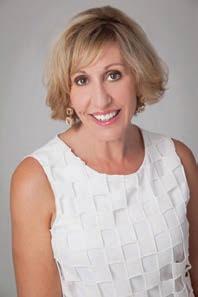
t was Israel’s first prime minister and Zionist icon, David Ben-Gurion, who said, “In Israel, in order to be a realist, you must believe in miracles.”
No quote better encapsulates the attitude Israelis and their supporters have — an indefatigable spirit that recognizes that regardless of how things appear at the time, Israel will continue to prosper and grow.
Jewish National Fund-USA shares this spirit, and we have responded to the
current rocket attacks on Israel by doing what we have always done: continuing to build a brighter and more prosperous future for the land and people of Israel, and Jewish people everywhere.
To be sure, these attacks have interrupted the sense of normalcy for many Israelis. A Zoom call with one of my Israeli colleagues was interrupted when she had to relocate to a nearby bomb shelter, a shelter that suddenly became the only safe place in her vicinity.
Yet, for many Israelis, especially in the Arava region near Gaza, this is, regrettably, normal.
Yet, they do not run away; they stay. The Arava is their home, and they refuse to be bullied into leaving their ancestral
homeland. The courage, resilience and resourcefulness of these modern-day pioneers inspires me every day, and I know that even during these scary times, they carry the optimistic spirit of Ben-Gurion and his predecessors.
JNF-USA has not been immune to the damage. Our Western Galilee Now Tourist Information Center has been severely damaged on the inside. We are working towards repairs and next steps. Additionally, our ADI Negev Rehabilitative Facility has moved all their residents into the secure rooms and shelters.
Yet, even in these extraordinary times, our affiliates are doing everything in our power to support the physical and
mental health of the men, women and children who are affected by the recent violence. Already, mobile emergency teams and representatives of the resilience center are visiting communities who need their support and guidance. Our fortified indoor playground in Sderot and children’s fortified Kingdom Playschool in Eshkol are keeping children safe while providing them with a muchneeded distraction.
Our resilience centers and newly completed animal therapy center in Sderot are available 24/7 in both safe spaces and in people’s homes. Hashomer Hachadash is sending hundreds of volunteers to Lod
SEE ROCHFORD, PAGE 14
We are a diverse community. The views expressed in the signed opinion columns and letters to the editor published in the Jewish News are those of the authors. They do not necessarily reflect the views of the officers and boards of the Jewish Community Foundation, Mid-Atlantic Media or the staff of the Jewish News. Letters must respond to content published by the Jewish News and should be a maximum of 200 words. They may be edited for space and clarity. Unsigned letters will not be published. Letters and op-ed submissions should be sent to editor@jewishaz.com.
NOTE
to assist the police and Magav. Lauder Employment Center North is opening its doors to neighbors who do not have shelters in their buildings. And we continue to support local firefighters with fire trucks, wagons and stations, among many other initiatives.
None of these happened overnight. JNF-USA has always had its eye on the
bigger picture, opting to support a vision that takes years, sometimes decades, to fulfill. This approach means that when attacks come, the areas we support are already prepared. Many of the fire trucks that are saving lives and property in the south were donated years ago. The indoor playground was a multi-year initiative that could not have happened overnight.
Because that’s the implied second half of Ben-Gurion’s statement. Yes, realism
in Israel includes believing in miracles. But miracles require effort. All of these facilities and the accompanying support will improve and save countless lives. This was the result of hundreds, even thousands, of people donating their money, time, resources and energy to make this vision happen.
JNF-USA has supported Israel through the good times and the bad. As Israel goes through these trying times, we
recent national poll from Grinnell College found that 96% of Americans believe that free and fair elections are important to our democracy. The same poll showed only 53% of Americans are confident that the votes of the 2022 election will be
Regardless of party affiliation — Democrat, Republican or Independent — we can all agree that a lack of faith in our elections poses real challenges for our country.
Unfortunately, Republican legislators in Arizona are offering all the wrong “solutions,” and are increasing division and mistrust. The clearest example is
Athe Senate’s so-called audit of the 2020 election. Maricopa County previously hired two federally certified companies to audit the election equipment — and there was no evidence of vote switching or modification of software.
Regardless, the Senate hired a firm called Cyber Ninjas to conduct a new “audit.” Within hours of the announcement, evidence emerged that Doug Logan, the firm’s CEO, had previously shared conspiracy theories about the 2020 election, including debunked theories about the exact voting equipment he has been hired to audit.
Logan hasn’t denied his own bias but has instead suggested it doesn’t matter. Not only that, but neither Cyber Ninjas nor Logan have any experience in either audits or elections.
It is no surprise then that the audit has been characterized by disorganization and conspiracy theories. Senate President
Karen Fann seems committed to this process, no matter how much it damages our democratic institutions, which is alarming to say the least.
As if the audit weren’t enough, Republicans in the legislature continue to pass bills that are unnecessary and detrimental to voters. Just this week, Gov. Doug Ducey signed SB1485, which removes voters from the Permanent Early Voter List, which will disproportionately impact minority voters.
And last month, the governor signed a bill that prohibits elections officials from accepting charitable grants to assist with “preparing for, administering or conducting an election,” while denying adequate funding for those activities. This hypocritical position regarding funding for elections’ related activities is stunning given how the Senate is now welcoming private funding to support their “audit.”
It is imperative that we stop the
n January 2018, anticipating my retirement from Jewish Family & Children’s Service, I called Mark Searle, Arizona State University’s provost. I hoped ASU would be interested in collaborating with the Jewish community to conduct the research for a Jewish population study. Searle and I had discussed such a venture a few years earlier.
A series of questions plagued me throughout my tenure at JFCS as vice president of philanthropic services and as a Congregation Or Tzion board member.
How many Jews live in Maricopa County? How many are members of synagogues? What are the reasons more Jews do not join synagogues? What percentage of our Jewish community contribute to Jewish organizations and secular nonprofits?
How might synagogue and Jewish organization leaders expand the reach of our institutions?
IThe last study of the Jewish population in metro Phoenix was completed in 2002. Nearly two decades later, the data from that study is no longer very relevant. As a Jewish professional, I needed to know the latest community demographics and sociographics, which are the characteristics that influence the way people receive and perceive messages.
But I also wanted to understand the changes that have occurred since 2002 and to learn how Jews in Maricopa County compared to Pew’s 2013 study on the national Jewish population. But well-done demographic studies can be very costly. Financial resources were a major obstacle to a new study for Greater Phoenix. And surveys also require significant community involvement and volunteer leadership.
Once ASU President Michael Crow endorsed the idea, the university agreed to conduct the research if there was a commitment from others in the
Jewish community to participate. With enthusiastic responses from Richard Kasper, CEO of the Jewish Community Foundation and Marty Haberer, CEO of the Jewish Federation of Greater Phoenix and the support of their boards, we recruited 18 other leaders representing a diversity of Jewish organizations in Greater Phoenix to form an advisory committee.
Searle enlisted two deans to create the research team management: Patrick Kenny, dean of the College of Liberal Arts and Sciences and Elizabeth Wentz, dean of social sciences in the College of Liberal Arts and Sciences.
Kenny sought out Professor Ken Goldstein, a nationally recognized pollster and researcher who has consulted with ABC News’ election unit as a member of its election night decision team. Goldstein is also a political science professor at University of San Francisco and a former ASU faculty member.
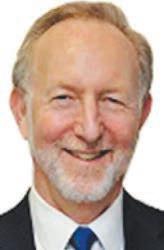
The 2002 study only utilized the Jewish Federation’s mailing list, which meant that the study did not reflect or
will continue to show our support, providing aid however we can and helping Israel defend itself using resources from decades-long initiatives.
But we know that this, too, shall pass, and Israel will still be standing strong, embodying the resilience of her pioneers, as our ancestral home becomes stronger and more prosperous than ever before. JN
Deb Rochford is National Campaign Director at Jewish National Fund-USA.
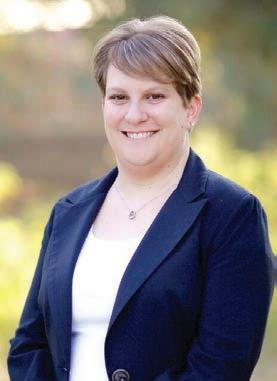
legislature from casting doubt on the integrity of our elections and then pushing proposals that create more barriers to voting. They need to tell the truth, something far too many politicians struggle to do.
The 2020 election was one of the most secure elections ever conducted in this country, and no evidence of widespread voter fraud exists. During the 2020 election, Ducey said Arizona has one of the best run election systems in the country, where it is “difficult, if not impossible, to cheat.” It’s time for him to be reminded of his words and asked to stand up for Arizona’s elections.
It’s time for him and other Republican leaders to stop the madness of this audit and the use of conspiracy theories to pass voter suppression measures. JN
Allie Bones is Arizona’s assistant secretary of state.
represent the attitudes of Jews living in Greater Phoenix who weren’t on the list. A much larger representative list of names was required to achieve an adequate sample of Jews living in Maricopa County, which meant we needed the cooperation, collaboration and participation of all area Jewish organizations and synagogues.
The advisory committee utilized the Jewish News’ Community Directory, which lists more than 100 organizations and contacts. Committee members, Goldstein and I spent a good part of our time reaching out to both large and small organizations, seeking their participation. Twenty-three agreed to participate and Goldstein used additional polling strategies to expand the reach of the survey.
The results of the study are solid and are already providing critical information to synagogues and Jewish organizations in Greater Phoenix.
My biggest takeaway from the survey
he most famous, and perhaps the most beautiful passage in the Torah, is the Priestly blessing, which falls in the middle of this week’s
May the Lord bless you and guard you.
May the Lord cause His face to shine upon you and be gracious to you.
May the Lord lift His face upon you and grant you peace. (Numbers 6:24-26)
In looking closer at this beautiful text, we notice that God’s holy name appears in each of the three stanzas. In addition, the only term repeated in the blessing is the word “face.” In Hebrew, the word for face is panim. In this blessing, the word is panav which means “His face.” We ask God to cause His face to shine upon us, and then to lift up His face to us. But does God have a face?
Of course this is a metaphor. God has no body, no outstretched arm nor mighty hand, no nose to smell nor voice to speak and, certainly, no face — at least in a physical sense. When the Bible uses such terms, it is anthropomorphizing aspects of God’s reality, using physical terms to describe the unphysical. So, what do we mean by a face, whether God’s or ours?
The first insight comes from the Hebrew. Panim is always in the plural, literally “faces.” In Hebrew, you cannot have a single face; there must always be more than one. Perhaps the reason is that none of us has just one face. We present the world with a certain face when we are happy, another when we are angry, another when we are frightened, and another when we are sad. We often present one face to the world and another to our family. Perhaps we have one face for business and another for pleasure.
Each of us has many faces. Therefore, face in Hebrew is always plural.
Another reason why face is always plural is that faces always come in pairs. Two people meet face to face. The word “face” is about an encounter with another. My
members and/or donors? How many of them share our organizations’ social media messaging?
face comes into being when it meets another face, when I really stand in the presence and see the other. To quote the old hit song, “It takes two baby, it takes two, me and you.” My face exists to encounter the face of my fellow. Humans need other humans, and need to be fully present. We must be able to see the other, to be open while confronting the other. Our very being is defined in relationship to others, and by being in the presence of others.
Being face to face is vital for our relationships. Spouses, and partners, need and deserve time with one another, face to face without distraction. Children have a vital need for their parents’ ongoing presence. Even in business settings, there is nothing more frustrating than talking to someone who is preoccupied by papers on the desk, phone interruptions or having their camera turned off on Zoom. People deserve our presence and full attention and we feel that through someone’s face.
And so it is with God. God does not have a face in any literal sense. But God has a presence. There are moments in
our lives when we feel we are living in the very presence of our Creator, when God’s presence is shining upon us, when God lifts up that presence and brings us peace.
The Priestly Blessing, which we read again in this week’s Torah portion, invokes in us a sense of God’s presence. As humans we need God. And perhaps equally important, God needs us. But each of us can feel the reality of God’s presence. May we all be lifted up and blessed by God and through each other’s presence. JN
was its conclusion: “Jewish organizations have a clear opportunity to expand their reach by targeting communications toward Jews ... who are partially but not fully engaged in the Jewish community.”
As the report states, social justice, ethical living and charitable works are the grounding principles which resonate with our Jewish population, and organizations should consider a greater focus on their efforts in those activities and priorities. There is a significant part of our community who are largely associated with Reform or Conservative Judaism, who are not members of a synagogue, but have a strong Jewish identity.
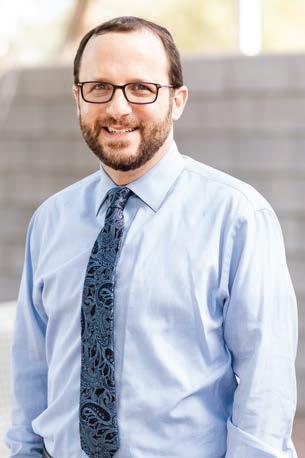
We may think our doors are open, we are welcoming and our values are clear, but according to the survey results, that message is not clear enough. If we are going to attract new members and donors, we need to reevaluate our messaging and find new ways to promote programs. We should consider synagogue programing that goes beyond the walls of our buildings; we need to meet prospective members on their terms; and we need to better utilize social media to increase our reach.
Though we may regularly communicate with our members and donors, we are challenged by the resources it takes to reach beyond our own membership and donor lists. How many of us promote another organization’s programs to our
There are over 100 Jewish organizations in Maricopa County offering many of the services, programs and activities that survey respondents identified as priorities. With the directory as a foundation, could we as a community create a marketing and communication strategy to reach out
would have provided a much more complete community picture. Organizations who chose not to participate were wary of sharing their mailing lists with the ASU researchers, even though we explained the university was bound by an ethical code of the Institutional Research Board that the lists were to be destroyed after the research and would not and could not be shared with
was made to the community, thanks to the Jewish News and the Jewish Community Relations Council of Greater Phoenix and their sponsors. More than 200 tuned in to the webinar as Goldstein provided study highlights and answered questions. Our Jewish community owes a debt of gratitude to ASU President Michael Crow, Provost Mark Searle,
to those unaffiliated Jews who indicate Judaism is important to their lives but still have not joined or contributed?
My other takeaway is that we need to do a better job communicating among our organizational leaders that collaboration is important. Less than a quarter of the organizations listed in the Community Directory agreed to participate in the survey. This certainly expanded our reach beyond the 2002 study, but greater participation
others or any other part of the university. Perhaps there will be greater participation the next time around and our community will see more value by collaborating and working together.
The 2019 Maricopa County Jewish Population Survey was published by ASU in February 2020, just as the coronavirus pandemic hit. Though printed copies and a digital format were made available to the community at that time, it was not until April 28, 2021, that a presentation
Dean Patrick Kenny, Dean Elizabeth Wentz and Professor Ken Goldstein for their time, talent and treasure that went into this study, and I want to thank them. JN
To view the study, go to thecollege.asu.edu/sites/ default/files/2019-jewish-community-report.pdf.
and president of Congregation Or Tzion.
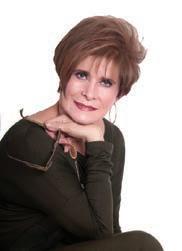
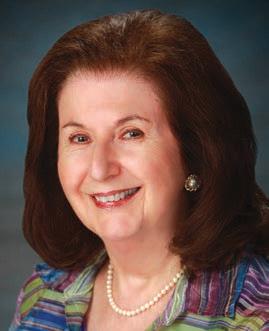
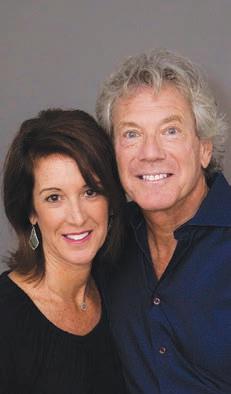
eople often have trouble figuring out what kind of design will work best in their homes, and it can be overwhelming. To help people out on this front, I recently held a forum for consumers to discuss some of their biggest design issues. And it was fun getting together and discussing decorating tips and feeding off one another’s ideas. Here are some of the questions that came up:
I would love to use some bold patterns on my upholstery. What do I have to know to do this successfully?
I love the use of big, bold patterns that make a statement. The best way to do this is with accents rather than on a large piece, and, of course, pillows are an obvious choice. Using solids as a base gives you flexibility but can also enhance a pattern when one color is used as a background bringing out the print's variety of colors.

Another way is upholstering a screen to use near windows behind a piece of furniture or as a visual divider in a room. I have one in my home, which hides a large electric organ we can’t part with. We use it occasionally but don’t want to see it.
How do you feel about mixing up styles and finishes?
This is one of my favorite things to do. It creates interest in a room and adds personality — your personality — to a room. This is your opportunity to be daring and experiment.
For example, you can put things together and create your own combination. The word popularly used for this style is eclectic. For example, when you combine a French-style desk with a contemporary chair, you are saying, “I am different, and
I see leather is back in a big way. Is it easy to use when decorating?
Yes, leather is a popular material these days and easier than ever to use when decorating for the following reasons:
• Variety. The palate of colors is almost endless, from the brightest to the most muted tones. It’s fun and interesting to use leathers in unexpected colors. It also now comes in textures and designs, which gives leather a whole new look.
• Feel. It is so soft that if you close your eyes it feels like fabric.

• Price. Leather has become more affordable. However, the softer the leather, the higher the price will be. You can also mix your leathers with fabrics such as chenille and more economical microfibers on the same piece to give interest and contrast, and the look is great.
I have noticed furniture is mirrored. How can we use these pieces? Mirrored furniture is back. This is a trend from the 1940s, which makes a glamorous and dramatic statement in any room. It is being used on all kinds of furniture. Years ago a client had a miniature piano that I mirrored, and it was the talk of the home. Today’s interpretation has gone even further — dressers are being mirrored, and sinks are being put into them for bathrooms.
What are some designer trends that you like?

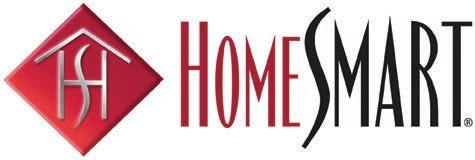
• Don’t feel like you have to match your furniture pieces — mix and match both finishes and styles.
• It’s creative not to place furniture against a wall. Come up with different ways to arrange the furniture to make it more interesting such as placing the furniture at an angle or floating the
seating to make the space appear larger and more open.
• Paint walls bright colors. Instead of having white ceilings, paint them the same color as the wall. If your wall color is dark, make sure the ceiling color is lighter, lessening the intensity. This will make the ceiling color appear the same because it is facing down. By painting the ceiling you can make the room feel cozier and not break up the look you created by painting the walls a special color.
There is no one way to decorate a room. Your imagination and understanding of your needs is all it takes when you remember that rooms have no feelings, you do. JN
SOPHIE
PANZER | CONTRIBUTING WRITER




Broadway has been dark for over a year, but Tovah Feldshuh keeps busy.
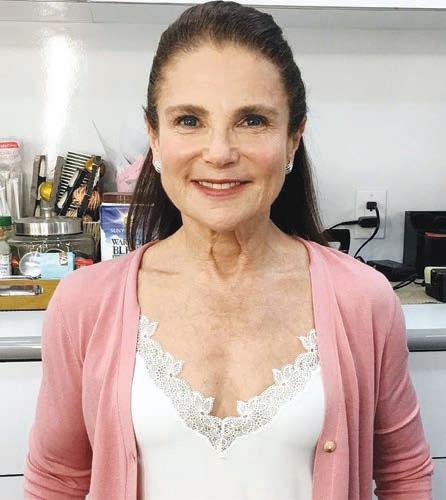
The four-time Tony nominee and star of Broadway productions like “Yentl,” “Golda’s Balcony” and “Irena’s Vow” adds the role of author to her resume with the release of her memoir, “Lilyville: Mother, Daughter, and Other Roles I’ve Played.” The book tells the story of her life through the evolution of her relationship with her mother, Lillian Kaplan Feldshuh, who died in 2014.
“What I hope the book does is engender hope in every child of every parent that you can bend toward each other,” Feldshuh, 68, said.
“Anything can be healed,” said Feldshuh, who has appeared in the television series “Law & Order,” “The Walking Dead” and “Crazy Ex-Girlfriend.”
The titular Lily was born on a dining room table in the Bronx to Russian and British Jewish immigrant parents in 1911. After marrying Sidney Feldshuh, she becomes a quintessential housewife in Scarsdale, New York, completely dedicated to her family and embracing American culture.
Feldshuh writes that while her mother provided her children with a stable
upbringing and shepherded them to their school events and social activities, she was not an affectionate parent. She preferred to show her love by trying to “improve” her daughter through criticism.
“Maybe if she said ‘I love you’ a million times I wouldn’t have gone into the theater,” Feldshuh said. “I wouldn’t have had to create an artificial universe where I would be the beginning, middle and end of a story.”
When young Tovah decides to pursue an acting career, her desire to stand out confounds her mother’s desire to fit in. Their generational tension comes to a head when the author decides to change her first name from the hyper-American one her mother chose, Terri Sue, to Tovah, the name she used in Hebrew school.
This decision isn’t intended to be a rejection of her mother — it’s inspired by a love interest who tells her Tovah is a better fit for her than Terri Sue — but it will change her destiny and attract Jewish roles that help build her career. She finally gets her big break on Broadway in “Yentl,” a play about a woman in an Orthodox shtetl who disguises herself as a man in order to study in a yeshiva.
As Tovah matures, she and Lily begin to strengthen their bond. They plan Tovah’s



wedding to attorney Andy Levy in a sixweek time crunch and rejoice in welcoming her children into the world. Although Lily remains critical of some of her daughter’s roles and decisions, she’s still in the audience when she takes the stage.
Their relationship reaches a turning point when Tovah’s beloved father falls ill, and she and Lily become closer than ever.
“If, God forbid, Andy precedes me in getting ill and beginning his death process, whenever that happens,” Feldshuh said, “I am incredibly equipped to take care of him because I watched my mother and how she was a gladiator to keep my father alive.”
“Lilyville” will thrill fans of Feldshuh with anecdotes about her iconic performances, from Israeli Prime Minister Golda Meir in “Golda’s Balcony” and trapeze-flying grandmother Berthe in “Pippin” to controlling Jewish mother Naomi Bunch in “Crazy Ex-Girlfriend.”
In addition to getting behind-thescenes glimpses of Broadway theaters and Hollywood sets, readers will realize how much Lily Feldshuh’s influence shines through in her daughter’s portrayal of strong women, Jewish and non-Jewish.
“When I would feel defeated, my mother banged on my chest,” Feldshuh said. “She didn’t hurt me, she just gently


v’dor , from generation to generation, to other Feldshuhs, to other Levys, and hopefully more than that, to all children of all parents.”




Feldshuh is looking beyond the pandemic to future projects, including starring as sex therapist Dr. Ruth Westheimer in a play about her life — as well as taking “Lilyville” to the small screen.
“I have written a television series based on ‘Lilyville,’ and I plan to play both my mother and myself,” she said. And if they make her choose between the roles? “I’ll be playing my mother, because she’s got all the punch lines, honey!” JN
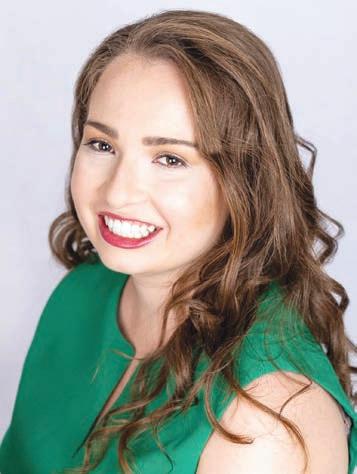
Jacob Ollanik began dating a Jewish woman he met online last February. But a week after the lockdown started he found himself single again.
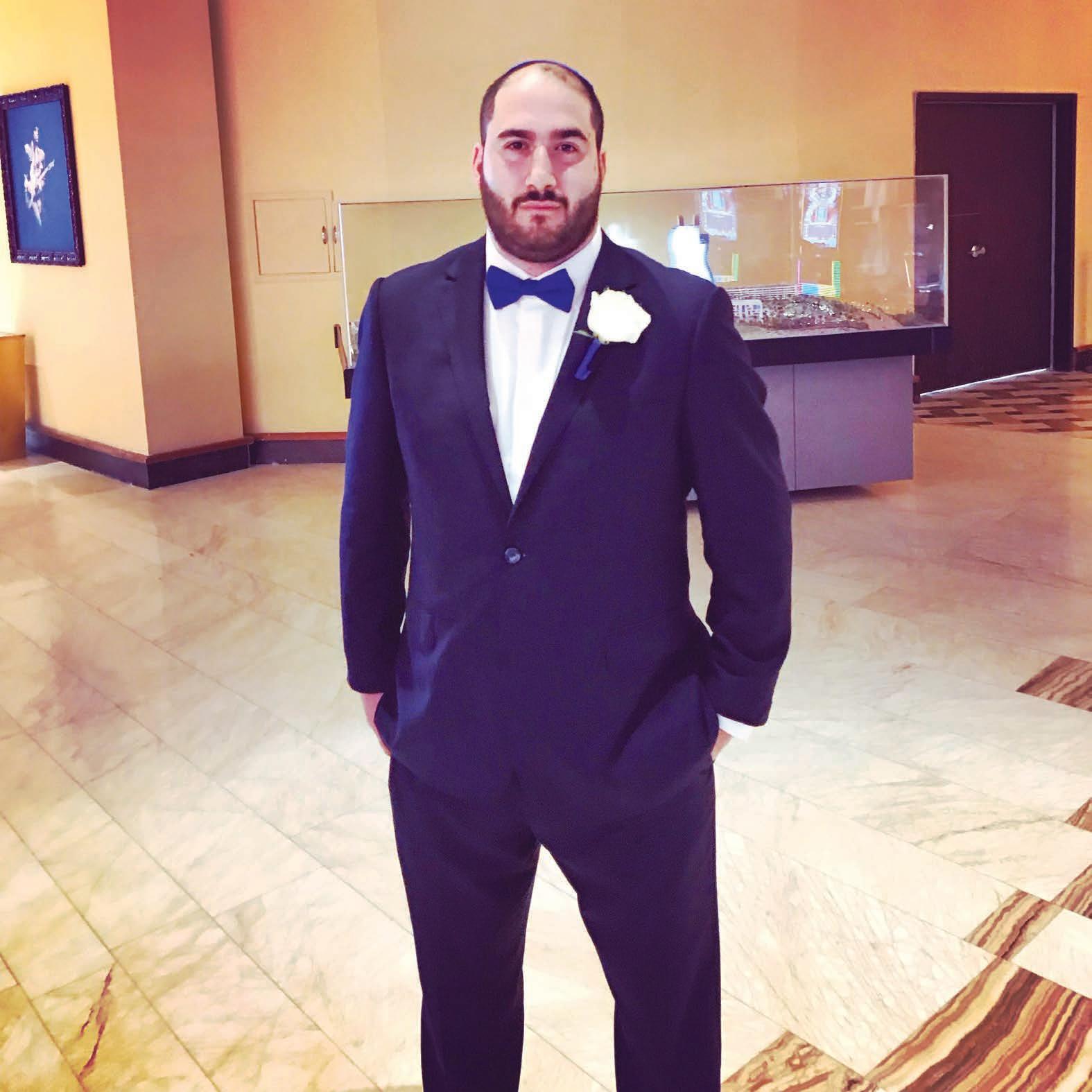
“Oh no is right,” Ollanik, 26, said. People were panic-buying, sanitizing their houses and transitioning to remote work. “No one was interested in dating people —meeting up with strangers, getting drinks. It either wasn’t possible, or it was scary.”
But as the months passed, people revisited their dating apps, and Ollanik, who lives in Tucson, met Kate Stansfield in October.
“We basically developed a relationship over FaceTime,” he said. “And she’s my girlfriend now. So I’ve kind of spanned the whole experience from being broken up with right at the start of pandemic, having absolutely nothing for a while and then starting a relationship online.”
and dating outside of our people.”
According to the Pew Research Center, 61% of Jews who married between 2010 and 2020 have a non-Jewish spouse, compared to 45% among Jews who got married the previous decade.
“I decided to make it my business to try to do something about it instead of just kvetch,” he said. “So when I meet Jews who don’t want to be alone, I want to help find the right partner for them.”
The pandemic has made Jewish singles want authentic and meaningful connections, he said.
“You have all these other dating apps where people are swiping this way and that way, and they’re using it to connect with people in a much more casual and superficial way, not really looking for a life partner,” he said. But the pandemic has made singles more lonely and isolated, and they are more interested in “connecting on a soul level” now.
Ian Mark, 32, an entrepreneur living in Israel, also made it his business to help his single Jewish friends couple up.
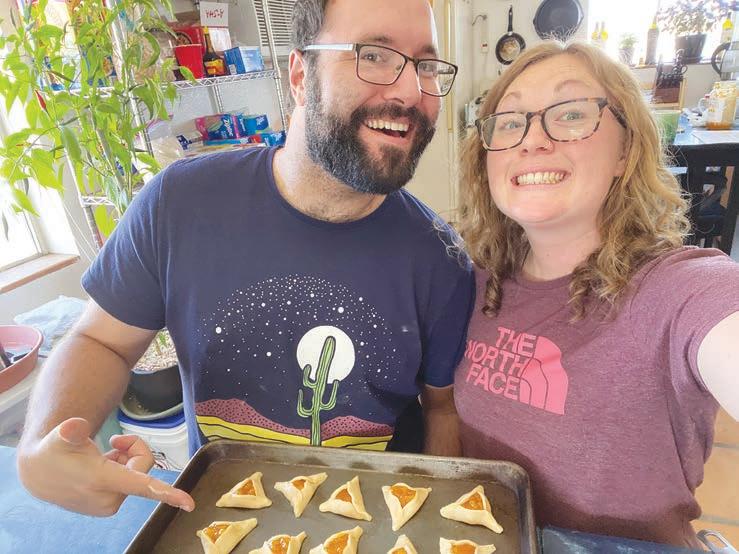
He created a private Facebook group at the start of the pandemic for Jewish singles looking for love called “CoronaCrush — creating Jewish couples in quarantine.”
“The point of the group was for friends to post a bio and a few pictures of their friends who were single, and then people would reach out to them,” he said. The group went viral and drew 10,000 members in its first month. It now has more than 20,000 members all
About a month in, he also began hosting virtual speed-dating events. Singles fill out a questionnaire about their basic needs, goals, religious observance and interests for his algorithm that matches people. Mark said he’s held about 45 of these events so far.
Jacob Mann, who lives in Phoenix, has participated in a few of them.
“The first time I did it I thought it was very interesting, but the truth is, it was a lot of fun. You really meet some interesting people and it’s a good experience all around, and it definitely puts you out there,” he said.
Mann, 28, heard about the CoronaCrush Facebook group through a friend on
“At first I thought it was a gimmick,” he said. “And then I ended up realizing that there are a lot of people that started to really put themselves out there on this group.”
He did the same, posting a short bio and a few pictures of himself. “I’m a positive-minded person who is self-reflective and tends to see more of the good than the bad in people,” his bio reads. “I’m also a bit of a goofball.”
Mann, who works for Venmo as a purchase support specialist, said he hasn’t found his soulmate yet, but is optimistic.
“I think people should be encouraged to put themselves out more during this time, rather than not,” he said. “It takes two people
Linda Mandel Cucher can almost make out a city scape in one of her abstract paintings.

“This piece is a little distracting,” she said. “It’s got some elements that could be perhaps a little bit disturbing for people to look at. But on the other hand, it’s a very balanced piece and I enjoy viewing it.”
She remembers exactly what she was feeling and thinking when she painted it in the pandemic’s early days. Her daughter in New York inspired her when she said the city that never sleeps, suddenly felt like a ghost town.
“Things can change on a dime, without even having the slightest warning,” Mandel Cucher said of the work’s theme.
Mandel Cucher, 70, is a counselor and art therapist in Scottsdale who also paints on commission and does multimedia work. She found herself painting more than usual and using brighter colors over the past year.
“There was much to be learned from this time, where people have to pull in and kind of unpack their emotional suitcases,” she said.
Mandel Cucher was one of a few local artists who spoke to Jewish News about the effect of the pandemic on their creative lives.
Gilat Ben-Dor’s last art exhibition was Jan. 31, 2020 in Mesa. “We were still gleefully ignorant as we dug our hands into communal bowls of chips and things at the refreshment table, and everyone gathered convivially and it was great,” she said.
But once COVID canceled her June 2020 exhibit, her disappointment led to an initial hiatus.
“Would I just wait and do the same thing when I could, or rethink my creative direction?” she pondered. “I would say that what started at first as anxiety and sadness over the shock of the pandemic has been turned into rich introspection.”
Ben-Dor, 46, spent the last year thinking about where to take her business and her art.
Before the pandemic, she painted a mix of fine and Judaic art, prepared for exhibits and also crafted commemorative artwork on commission. She also managed an Etsy account, etsy.com/ shop/gilatsilkart, dedicated to hand-painted silk, including challah covers and chuppahs.
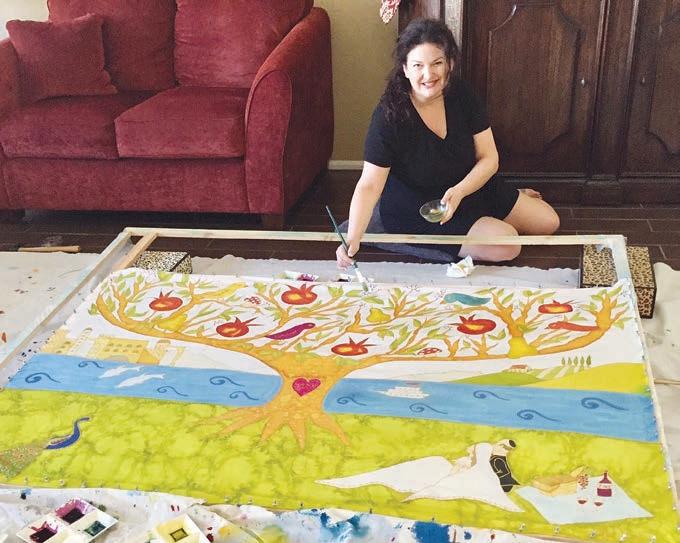
She hopes to resume this mix in the postpandemic world, but with many life events on hold, she has had fewer requests to create artwork for them. She’s used her time instead on introspection.
“I’m actually grateful for that now, because before COVID, I was living such a whirlwind life, and trying to juggle so many things,” she said. While the work made her happy, it always came at the expense of reflection and planning.
She’s now been able to plan her next body of work and develop a way to expand the business she gets from commission-based work. She is launching her website, gilatbendor.com, in a few months.
She decided to expand her commemorative work to everyday occasions, instead of just milestone events. “I look forward to making
that available this summer,” she said. Her new work will be an homage to Jerusalem and her Israeli roots. “That will kind of straddle both the Judaic and the fine art arms,” she said. “I hope to exhibit that even in general venues once that’s done.”
Phoenix-based musician Tikvah, also known as Ilana Bruce, used the last year to finish and release a song that she began writing in 2018. “Nasty Woman” has been on all streaming platforms since March 28.
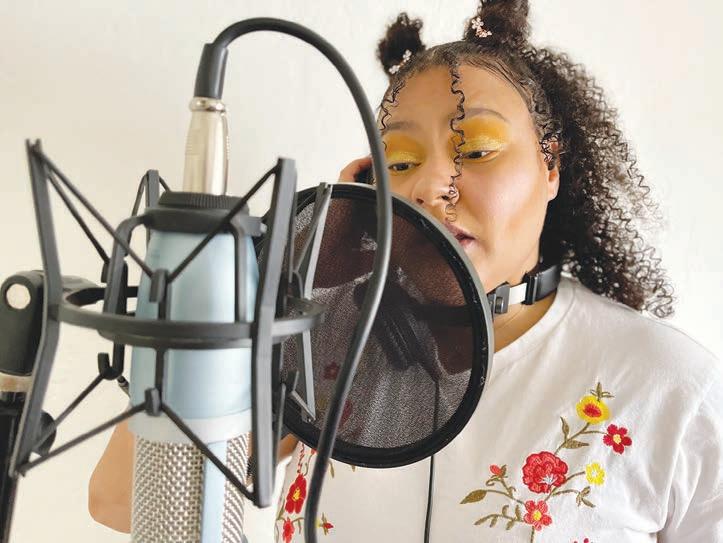
“At the time I wrote it, I was just really upset about the treatment of women,” said Tikvah, 27. In 2016, Donald Trump used the phrase “nasty woman” to describe Hillary Clinton during the third presidential debate. And then came the #MeToo movement in 2018, and Tikvah wanted to celebrate and reclaim women’s empowerment.“It’s about accepting women as they are,” she said. Her favorite lyrics are “I just want to move my hips and she just wants to dress more modest. You’re a queen, keep running your world. I’ll always stand by my girls.”
Despite a change in presidential administrations, she said the message of her song is still relevant. Women, especially Black women, and other people of color, are not treated as equals, she said. “Our health care is not equal. Education, in some ways, is not equal, there’s just a lot of things that need to be worked on.”
Black and Jewish, Tikvah was born in Germany to an Israeli mother. She chose the name Tikvah because it means hope in Hebrew.
“I hope my music and identities form a bridge of peace and hope in the world. If I change one person’s life with my music, I have done what I was put on the Earth to do,” she said.
Quarantine afforded her the time to complete the song with her producer, Uriah McCarthy, and to plan its digital release, Tikvah said.
“The pandemic brought good and bad in music,” she said. “We kind of got cut off from the world, and so, as artists, our only way to reach people now is online.”
Mandel Cucher said she, too, used the pandemic to complete certain projects.
“It’s not that I didn’t have the time before all this happened. It’s that I wasn’t using that time to do it as much. I wasn’t making that a priority. And when the pandemic came, I re-juggled my priorities, as I believe many of us did,” Mandel Cucher said.
She decided to finish a painting she started several years ago — a painting of a man praying at the Western Wall.
“There’s things I want to perfect on it,” she said. The piece is meant to be inspiring. And, reflecting on this past year, she feels God has sent many messages during the pandemic, which she hopes to convey in her work.
“It’s kind of the great equalizer, this pandemic,” she said. “If anybody thought before that they were above it all, or away from it all, or could leave it all — no, we’re all in it together.” JN
Film screening: Arizona Jewish Historical Society will stream “Quality Balls: The David Steinberg Story.” The documentary follows one of the world’s best known stand-up comics, who also directed some of the most successful situation comedies of the last 20 years. Born in a strict Jewish household, he abandoned his yeshiva studies to join Chicago’s legendary Second City improv troupe, and never looked back. He appeared on The Tonight Show with Johnny Carson more than 130 times, but his irreverent take on religion was too hot for CBS. This documentary includes clips of Steinberg’s performances and TV directing credits and backstage stories from Jerry Seinfeld, Larry David, Norm Macdonald, Jeff Garlin and others. Cost: Free. For more information and to register to stream the film, visit azjhs.org/quality-balls.
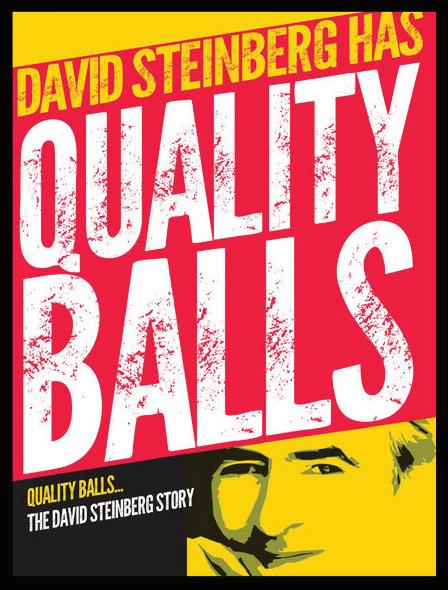
FRIDAY, MAY 21
Vaccination Celebration: Noon. The Phoenix Holocaust Association is planning an informal get together for lunch at Julio’s Too. Indoor dining with self-pay. Let Susan Lane know if you plan to attend by emailing suze0000@gmail.com.
SUNDAY, MAY 23
Anniversary concert: 5 p.m. Congregation Beth Tefillah is having its 10 year anniversary concert on at the Scottsdale Civic Center Park. Cost: $72 for attendees 10 and up, $150 for VIP seating. To RSVP, please visit: bethtefillahaz.org/event/cbtconcert.html. For more information, contact info@bethtefillahaz.org.
MONDAY, MAY 25
BBQ: 4:30 p.m. Join Smile on Seniors for a fun and filling outdoor BBQ. Open to seniors and active adults. Cost: Suggested $10 donation. To RSVP, visit smileonseniorsaz.com or call 602-492-7670.
WEDNESDAY, MAY 26
Martin Pear JCC Golf Tournament: 8 a.m. The Martin Pear JCC Golf Tournament returns after a five-year pause. For more information and to register, visit jewishphoenix.regfox.com/martinpear-jcc-charity-golf-tournament or call Megan Montgomery at 480-481-1756.
MONDAY, MAY 31
The Phoenix Civil Rights Memorial: The City of Phoenix is updating the final panel of the timeline on a memorial at Eastlake Park. A task force consisting of members from the city’s advisory Human Relations Commission and Arts and Culture Commission are collecting public feedback to develop recommendations that the mayor and city council will review. The memorial consists of a small concrete amphitheater covered by an arched steel canopy modeled after the Arizona state flag, and includes a timeline etched into stainless steel plates, denoting critical events in the civil rights movement, locally and nationally, over the past 100 years. The deadline to submit feedback is May 31. To do so, visit tinyurl.com/2vauwna7.
FRIDAY, JUNE 25
Splish Splash Tot Shabbat: 9:30-10:30 a.m.
Celebrate Shabbat while staying cool by the Martin Pear JCC splash pad. Organized by PlayDates By Design and PJ Library, we will sing songs, story time, a craft and splash. Children under 3 must wear a rubber pant over their swim diaper. Cost: Free. Registration required at playdatesbydesign.com/event-details/ splish-splash-shabbat.
FRIDAYS MAY 1-JULY 28
PJ Library is fundraising with Lee Laa Lou Jewish Educational Stickers. Looking for some fun educational activities to do with your kids? We got you covered. Receive 10% off of the entire store by using the code PJPHX10. PJ Library in Phoenix will receive 20% back of total sales! Shop here: leelaalou.com/discount.pjphx10
WEDNESDAY, JUNE 2-JUNE 4
PJ Library Summer of Mitzvot Bags: Keep the kids busy this summer and teach them about Mitzvot. In each bag is a variety of Mitzvah projects you can do throughout the summer. First bag is free, each additional bag is $5. Pick up from four locations, Beth El Congregation June 2nd, Martin Pear JCC June 3rd, Temple Emanuel June 4th. Order you bags at mpjcc.org/pjmitvot. Sponsored by the Hersh Family.
FRIDAY, MAY 21
Survivor story: 10 am-12 pm. PHA Vice President & 2G Janice Friebaum will share her father’s story virtually. RSVP by emailing Tony Fusco at afusco@azjhs.org.
SUNDAY, MAY 23
From Bourbon to Blue Jeans: 1-3 p.m. “From Bourbon to Blue Jeans: Bavarian Jews and Their Influence on American Culture” will begin with an overview of Jewish immigration to the United States. The patterns of immigration, the conditions required to travel, and the ports of arrival in the United States by individuals and families will be reviewed. Jewish men who settled in the United States were identified by the state not by their religious affiliation but by their race (white) and therefore had all the rights that other white males in society held: citizenship, voting rights, and land-owning. How this distinction supported their ability to flourish economically and to fully participate in civic life was significant. Cost: Free. For more information and to register, visit azjhs.org/from-bourbon-to-blue-jeans.
MONDAY, MAY 24
Virtual Presentation: Tour Vietnam, Laos, Cambodia presented by Steve Mirer 12:30pm To join, visit sosaz.org/virtual Cost: Free. For full details visit sosaz.org/virtual or email Rabbi Levi Levertov at levi@sosaz.org.
THURSDAY MAY 27
What’s for dinner?: Noon-1 p.m. In this virtual class, learn tips, tricks and tools to create repeatable and healthy meals that the entire family will love. Cost: Free. For more information and to register, visit apm. activecommunities.com/valleyofthesunjcc/ Activity_Search/j-nutrition-talks-series-1/1754.
Pajama Genealogy: 11 a.m.-noon. Judi Gyory Missel, a member of the Phoenix Jewish Genealogy Group and the International Association of Jewish Genealogical Societies, has been fascinated by genealogy for over 30 years. Join this 4 part series to explore how to search your family roots from the comforts of your own home. Cost: Free. For more information and to register, visit jfcsaz.org/cse, or contact Jennifer Brauner at: seniorcenter@jfcsaz.org or 602-343-0192 with questions.
FRIDAY, JUNE 4
Survivor Story: 10 a.m.-noon. PHA board member & Holocaust survivor Rise Stillman will share her
story. RSVP by emailing Tony Rusco at afusco@azjhs.org.
MONDAY, JUNE 7
What does God do all day?: 1-2 p.m. Explore a number of rabbinic stories that imagine God’s daily schedule and nightlife in this virtual Valley Beit Midrash class. These narratives are playful and quirky but beneath the whimsical surface they address profound theological questions about how the world operates and how each of us ought to use the hours of each day. Cost: $18. For more information and to register, visit valleybeitmidrash.org/upcoming-events.
THURSDAY, JUNE 10
Love, Dad: 5 p.m. When author Mike Anthony’s father unexpectedly died, his family was left shocked and utterly devastated. However, when a phone call came out of the blue delivering a complete stranger’s message that Mike’s dad had contacted her from “the other side,” it kicked off a chain of events that entirely changed Mike’s family’s perspective on life, death and the transcendent nature of love. Join Mike online for a virtual book talk. He’ll share his remarkable quest, as his skeptical mindset gets challenged and eventually overruled through an extraordinary journey, leading to something that would forever change his understanding of reality. Cost: $10 for MPJCC members, $15 for non-members. For more information and to register, visit jewishphoenix. regfox.com/meet-the-authors-series.
THURSDAY, JUNE 17
Praying for the Monsoon: 1-2 p.m. The summer months typically supply a significant portion of Arizona’s annual rainfall, but in recent years have been bone dry. As Monsoon season arrives, it’s tempting to pray for rain. But can we do so as Jews? And if we did, what would it look like? Join Dr. Daniel Stein Kokin as he virtually presents his “Tefillat ha-Monsoon,” and explores the halakhic, literary, and identity issues raised by this new prayer. Cost: $18. For more information and to register, visitvalleybeitmidrash.org/event/prayingfor-the-monsoon-an-arizona-liturgical-adventure. Is your metabolism broken?: Noon-1 p.m. In this virtual class, learn what the metabolism is, how it’s affected by low calorie diets and what you can do with your nutrition and lifestyle to support a healthy metabolism for long term weight loss. Cost: Free. For more information and to register, visit apm. activecommunities.com/valleyofthesunjcc/ Activity_Search/j-nutrition-talks-series-1/1755.
TUESDAY, JUNE 22
The Four Books That Changed Jewish History: 1-2 p.m. In this virtual Valley Beit Midrash class, forget everything we’ve been told about what it means to be Jewish and delve into the four books which forever made, and changed Jewish history; The Bible – where our story begins; The Talmud – when we are told to question everything; The Guide for the Perplexed – the book which told to be rational, and The Zohar – the book which revealed God’s secret. In this class we will learn about the unique revolution
offered by each book, unravel what it has meant to be Jewish over time, and perhaps even come to question what being Jewish means for each one of us. Cost: $18. For more information and to register, visit valleybeitmidrash.org/event/ the-four-books-that-changed-jewish-history.
MONDAYS
Partners in Torah: 7:30 p.m. Join a growing group of inspired learners with Project Inspire. Cost: Free. Tune in at: us04web.zoom. us/j/3940479736#success, password is 613. For more information, email Robin Meyerson at robin@projectinspireaz.com.
Ethics of Our Fathers: 7 p.m. Learn with Rabbi Zalman Levertov online. Tune in at: bit. ly/2Y0wdgv. Cost: Free. For more information, visit chabadaz.com.
MONDAYS, APRIL 5-MAY 24
Welcome to Judaism: 5 p.m. This introductory Bureau of Jewish Education course provides a foundation in the basic tenets of Judaism. The class is open to non-Jews, and any adult interested in further exploring Judaism. Cost: $50. For more information and to register, visit bjephoenix.org/courses/available-courses.
MONDAYS, APRIL 12-AUG 23
Semichas Chaver Chabad: 8 p.m. Over the next six months the Semichas Chaver Chabad Program will be studying some of the most common melochos of Shabbos with practical application. The classes will be at the at Chabad of Arizona and will entail an in-depth textbased study of the background and underlying principals of the halacha. The topics that will be covered are: Melaben (cleaning), Boneh Bekeilim (opening packages), Borer (sorting), and Sechita (squeezing). Cost: Free. To register, contact Rabbi Dovber Dechter at dovberdechter@gmail.com or at 347 410 0785.
MONDAYS, APRIL 26-MAY 31
This Can Happen: 7-8:30 p.m. Instant media, mass social movements and a global pandemic have shown us how suddenly and radically the world can be rewired by the actions of a few. In this six part virtual series by Chabad of the East Valley, demystify the Jewish idea of a perfect world and discover a practical path for reaching it in our lifetime. Cost: $99. For more information and to register, visit tinyurl.com/efas3yf9.
TUESDAYS
Keep Calm and Play Mahjong: 6:30-8:30 p.m. Play mahjong from home with myjongg.net. Cost: Free. To join a table, email Nicole at nicoleg@vosjcc.org.
39 Ways to Repair the World: In celebration of Rabbi Shmuly’s 39th birthday, he is teaching the 39 melachot over the year (1 per week for 39 weeks). Each session will be between 15-20 minutes long on Tuesdays. Cost: Suggested $18 donation. For more information, visit valleybeitmidrash.org.
Let’s Knit: 1:30-3:30 p.m. Share the pleasure of knitting, crocheting, etc. and help others with a project or pattern. Can’t knit? We can teach you! Every level welcome. We will be sitting outside at the Ina Levine Jewish Community Campus and social distancing. Our last meeting before August will be Tuesday, May 11. Cost: Free . For more information, email Nicole Garber at nicoleg@mpjcc.org.
TUESDAYS, JAN. 12 - MAY 25
Introduction to Judaism: 7-9 p.m. Learn the basics of Judaism with Rabbi Stein Kokin. For more information or to register, visit bethelphoenix.com/adult-education.
TUESDAYS, APRIL 6-MAY 25
Mastering the garden: 9:30 a.m. During this eight week series, master gardeners, Gail La Tour and Mary Lu Nunley from Keep Phoenix Beautiful will teach you what you need to know. The class is called “Doin’ the ‘rot’ thing!” Did you know that waste from your veggies, coffee grounds, egg shells and shredded paper are just a few of the things that can end up being good for your plants? Cost: Free. To register, visit jfcsaz.org/events. For more information, contact seniorcenter@jfcsaz.org or call Jennifer Brauner at 602-343-0192.
TUESDAYS, APRIL 6-JUNE 22
Why We Do What We Do: History, Customs and Laws: 10 a.m. An online 11-week class exploring Jewish history, customs and laws. No class May 18. Cost: $110. For more information and to register, visit evjcc.org/obm.
TUESDAYS, MAY 11 - JULY 6
Growing with the Garden Gals from Keep Phoenix Beautiful: 9:30 a.m.-10:30 a.m.: An 8-week series of learning with Master Gardeners, Gail La Tour and Mary Lu Nunley from Keep Phoenix Beautiful. Classes held virtually at Mountain View Community Garden. Cost: Free. For more information and to register, visit jfcsaz.org/cse, or contactJennifer Brauner at: seniorcenter@jfcsaz.org or 602-343-0192 with questions.
TUESDAYS AND THURSDAYS, MAY 25 - JUNE 24

Ballroom Dancing: 6:30-7:30 p.m. Dance instructor Gabby Burrell will be teaching the foxtrot and single step swing with an added bonus dance at the end. All levels welcome. The class is in-person at the Marin Pear JCC Fitness Studio. Due to social distancing you must sign up as a couple. Cost: $200 for MPJCC members, $250 for non-members. For more information and to register, visit apm.activecommunities.com/ valleyofthesunjcc/Activity_Search/1757.
WEDNESDAYS
Happiness Hour: 11:30 a.m. An online class taught by Rabbi Pinchas Allouche delves into texts and references culled from our traditions to address a relevant topic and draw uplifting life lessons from it. For more information or to join, visit cbtvirtualworld.com.
JACS: 7:30-8:30 p.m. Virtual support group for Jewish alcoholics, addicts and their friends and family on the first and third Wednesdays of the month. Cost: Free. For more information, email jacsarizona@gmail.com or call 602-692-1004.
Torah Study with Temple Beth Shalom of the West Valley: 11 a.m. - noon. TBS of the West Valley’s weekly virtual study group explores that week’s portion and studies different perspectives and debates the merits of various arguments. Intended for adults, Torah study is open to students of all levels. The goal is to achieve an understanding of what the text is and what it can teach us in the contemporary world. Fore more information, contact the TBS office at (623) 977-3240.
Lunch & Learn: 12:15 PM. Grab some food and learn online with Rabbi Yehuda Ceitlin. Cost: Free. Tune in on Zoom by emailing info@ ChabadTucson.com. For more information, visit ChabadTucson.com.
History of the Jews: 11:00 AM Learn the Jewish journey from Genesis to Moshiach online with Rabbi Ephraim Zimmerman. Cost: Free. Tune in here: zoom.us/j/736434666. For more information, visit chabadaz.com.
Knit a Mitzvah: 1-3 p.m. On the second and fourth Wednesdays of the month, check in with fellow knitters who are making items to donate as part of this Brandeis National Committee Phoenix chapter study group. For more information, contact Ronee Siegel at ronees@aol.com.
SUNDAYS
Soul Study: 7:15 a.m. An online class exploring the secrets of the Tanya and Jewish mysticism, taught by Rabbi Pinchas Allouche. Cost: Free.
Anxiety in the Modern World: 6 p.m. Learn the secrets of the Torah for living stress-free in the current environment in a virtual class with Rabbi Boruch, with Chabad of Oro Valley. Cost: Free. Tune in using this link: zoom.us/j/736434666. For more information, visit chabadaz.com.
Jewish War Veterans Post 210: 10 a.m. Any active duty service member or veteran is welcome to join monthly meetings, now virtual, every third Sunday, Cost: Free. For more information, email Michael Chambers at c365michael@yahoo.com.
Seniors
MONDAYS
Dance Fusion with Michele Dionisio: 11 a.m.-noon. Presented by JFCS Center for Senior Enrichment. Cost: Free. For more information, visit jfcsaz.org/cse.
Featured Presentation: 12:30 p.m. Join Smile on Seniors Mondays and Wednesdays to learn from a variety of presenters about topical issues, like Q&As with medical professionals, entertainers and lectures. Cost: Free. For full details visit sosaz.org/ virtual or email Rabbi Levi Levertov at levi@sosaz.org.

Mindfulness-Based Stress Reduction: 1-2:30 p.m. In a seven week series that begins April 5, learn how to use mindfulness techniques to help relieve anxiety, depression and pain. Cost: Free. For more information and to register, contact seniorcenter@jfcsaz.org or call Jennifer Brauner at 602-343-0192.
TUESDAYS
Brain Games with Friends: 2-3 p.m. Challenge your brains while having fun. Experts believe that active learning helps maintain brain health by preventing loss of cognitive skills such as memory, reasoning and judgment. For more information or to register, visit vosjcc.org/j-at-home-adults.
Movie Discussion Group: 11 a.m. Join Smile on Seniors on the third Tuesday of every month hosted by Issy Lifshitz. Cost: Free. For full details and the movie of the month visit sosaz.org/virtual or email Rabbi Levi Levertov at levi@sosaz.org. Because of Shavuot, May’s event will be May 20 instead of May 18.
THURSDAYS
In the Kitchen with Benita: 12:30 p.m. Join Smile on Seniors on the fourth Thursday of every month for some delicious cooking or baking fun! Cost: Free. For full details visit sosaz.org/virtual or email Rabbi Levi Levertov at levi@sosaz.org.

FRIDAYS
Adult Chair Ballet Class: Noon-12:45 p.m. Join Jennifer Cafarella and Elaine Seretis from Ballet Theatre of Phoenix as they teach a ballet class that will help improve strength, flexibility, movement and balance. No prior dance experience required. Presented by the JFCS Virtual Center for Senior Enrichment. Cost: Free. For more information, visit jfcsaz.org/cse.
Musical Friday: 12:30 p.m. Join Smile on Seniors on the first Friday of every month for a musical presentation. Cost: Free. For full details visit sosaz. org/virtual or email Rabbi Levi Levertov at levi@sosaz.org. JN

Team Israel huddles on a practice field in Arizona as they prepare for the Olympic Games in Tokyo.
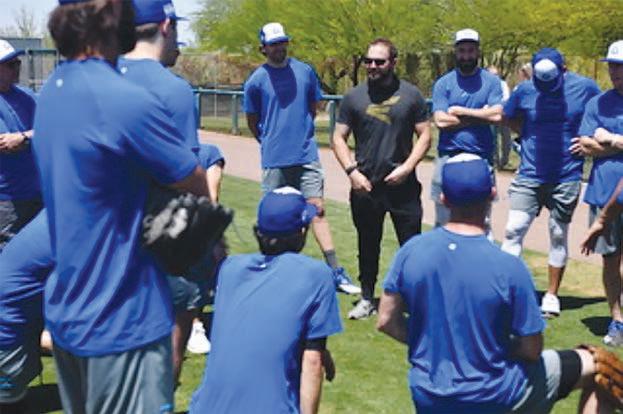
Students from Phoenix Hebrew Academy show off their science projects on Thursday, May 13. The audience was captivated by the range of topics and conclusions. PHOTOS BY EVA BARACH-HARRIS
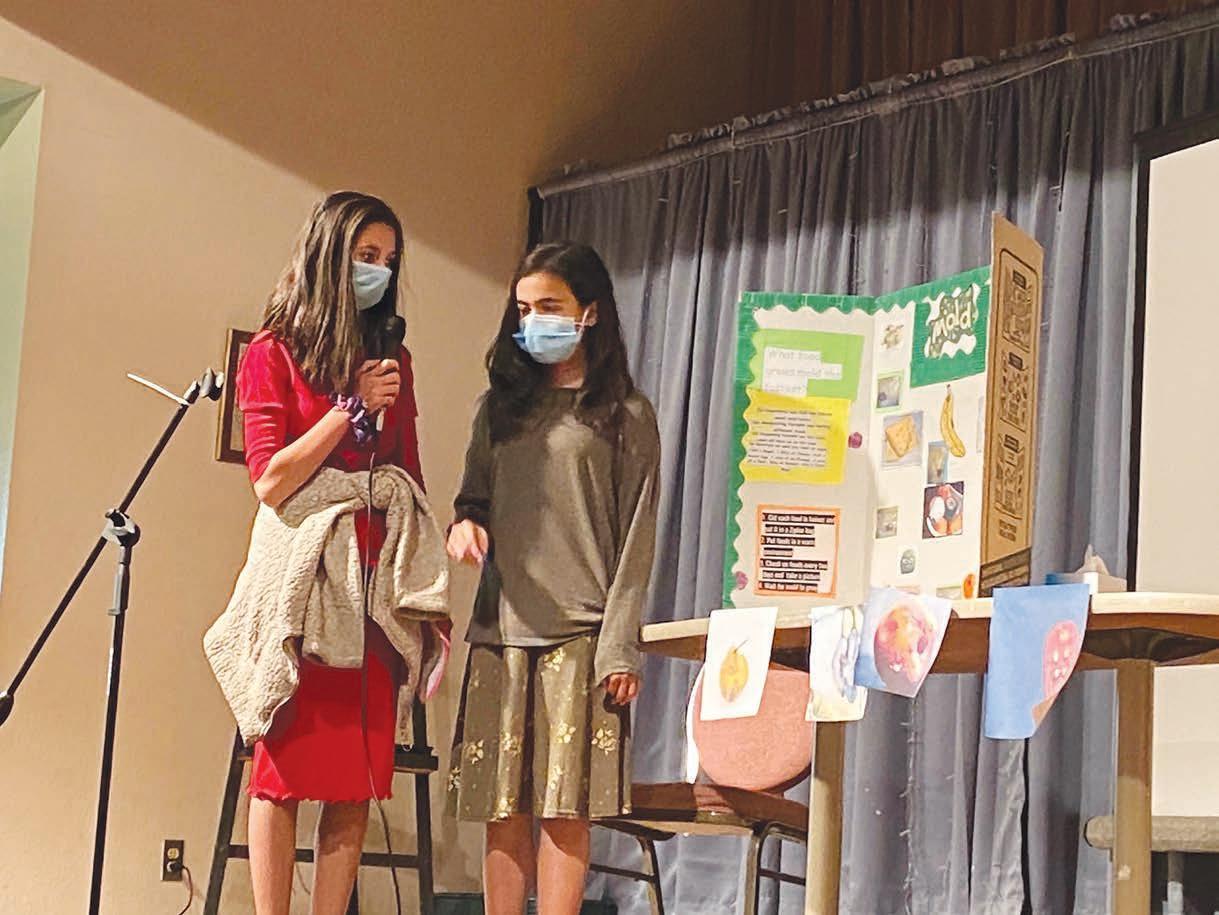
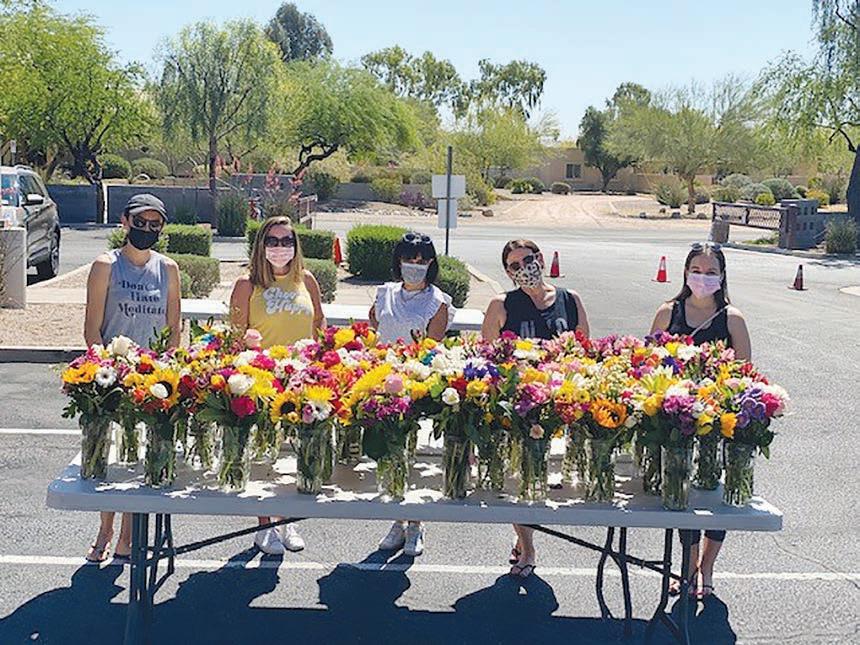
This COMMUNITY page features photos of community members around the Valley and the world. Submit photos and details each week to editor@jewishaz.com by 10 a.m. Monday.

will also have small pods of campers, and in a change from last summer, campers will go swimming twice a week in Tempe where they will have the pool to themselves, said Pam Morris, camp director.
“We’re looking forward to a great, fun summer with lots of returning campers and new ones as well,” she said. Already the camp is nearing capacity. There are more campers than last year, but still fewer than in years past.
Rimon will continue some virtual programming this summer. There will be a virtual Lego camp and virtual field trips for all campers. “We’ll embrace all of the technology we have at our fingertips to make sure camp is just as amazing as it always was,” Morris said.
She’s most excited about new virtual reality technology for the older campers and adults. Campers will be able to visit the Western Wall, the depths of the ocean or just play games together, all without leaving campus.
Morris took the glasses out for a test run and visited Anne Frank’s house where she could read notes on the wall and see the bookcase the family hid behind. “It makes you feel like you’re right there,” she said. Whatever happens with COVID, she is sure virtual reality is here to stay.
MADELINE DOLGIN AND MATHEW SHERMAN

Last summer, Temple Chai Cantor Ross Wolman and his family spent time exploring national parks. “We showed our kids love of the land and of our neighborhood,” he said. As nice as that was, it still wasn’t the same as being at Camp Newman in Santa Rosa, California, where they would have been if not for COVID.
But they’ll soon be headed back to Newman, even if it won’t look exactly the same — safety protocols will be intact and there will be no traipsing to wine country on days off given that staff won’t be allowed off the grounds.
Newman is the regional Union of Reform Judaism camp and Temple Chai, in addition to other local Reform congregations, send several campers each year.
Wolman said camp is a place to “cement Jewish identity,” something he’s anxious to help foster once again.
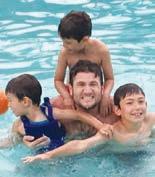
“Creating immersive identities has such a great lasting effect on kids; it teaches community, how to thrive independently and apply Jewish ethics to every day lessons and creates lasting friendships,” he said.
Wolman summed up the feeling of many preparing for camp this summer: “I’m lucky to be back.” JN
Jacob Benjamin Buros, age 34, of Tucson, departed our company too soon on May 4, 2021.
Jacob, known as Ben by those who loved him, was born in Phoenix on July 20, 1986. He was raised in Scottsdale, Bainbridge Island, Washington and Tucson. Ben, always a kind soul, was keenly interested in the world around him, welltraveled and an accomplished musician with passions for guitar and punk rock. Ben spent his time learning and making his way in the world.
Preceded in death by his father, William Buros, Ben is survived by his mother, Valerie Buros (nee Gordon) of Flagstaff; his sisters, Sarah Rendon (Francisco) and their children Adam, Ethan, and Isaac; and Rebecca Rieke (Brad) and their children Emma and Amelia; and his brother, David Max Buros. He is also survived by his aunt, Barbara Buros of Santa Fe; his half-sister, Lainie Wooster and half-brother, Charlie Buros of Cardiff, California.
Ben’s memorial service was held Monday, May 10, 2021, at Green Acres Cemetery.
Thelma Amdur Gross, 82, of Carlsbad, California, passed away on April 19, 2021.
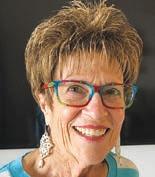
Born in Pittsburgh, Pennsylvania, Thelma moved to Phoenix in 1956 and attended the University of Arizona. She met the love of her life, Jerry Gross, and they were married in 1957. They traveled overseas while Jerry was in the military and then settled in Phoenix in 1959. Thelma was active in many community organizations including the Jewish Federation of Greater Phoenix’s Women’s Philanthropy, Kivel Campus of Care and Make-A-Wish Arizona. After Jerry passed away in 2014, Thelma moved to Carlsbad. Thelma loved many activities, including mahjongg, movie groups, performing in plays and she was an avid Bridge player. But her true passion was her family, her beloved husband, children and grandchildren.
Thelma is survived by her daughter, Susan Arenson; her son, Marc (Marci) Gross; and her grandchildren Joshua (Lauren) Arenson, Michael Arenson, and Haley and Joey Gross. Memorial services were held Wednesday, April 23, 2021, in San Diego. Contributions in her memory may be given to the Pancreatic Cancer Action Network (pancan.org) or the Crohn’s/Colitis Foundation (crohnscolitisfoundation.org).
Holly and Ken Dolgin of Scottsdale announce the engagement of their daughter, Madeline Dolgin of Tempe, to Mathew Sherman of Tempe.
Parents of the bride-to-be are Holly and Ken Dolgin. Parents of the groom-to-be are Randi Jablin and Dave Sherman.
Madeline graduated from New York University in 2016. She works as a senior enrollment advisor for Arizona State University and is pursuing a master’s degree in natural resources in global
Mathew graduated from Arizona State University in 2016. He is the founder of SeedScout, Inc. The wedding will take place on March 5, 2022, in The Icehouse in Phoenix.
Joan Wallace, 93, our beloved mother, grandmother and great-grandmother, passed away peacefully at the Sherman House at the Mayo Clinic on March 11, 2021, surrounded by her family. She is survived by her daughters, Steffi, Jill, Jan and Amy; sons-in-law, David, Bob and Jeff; grandchildren, Jennifer, Rachel, Adam, Alex, Sarah and Griffin and their spouses; and great-grandchildren, Gabrielle, Jacob, Alex, Owen, Michelle, Andrew, Olivia, Ari and Alexa. Joan was predeceased by husbands, Dr. Bertram Schneider and Dr. George Wallace; and her granddaughter, Lori Cohen.
BIRTH
GEORGINA
Georgina “Georgie” Mae Ettinger was born on May 10, 2021. She is the daughter of Sarah and Seth Ettinger of Phoenix. Seth is the cantor at Congregation Beth Israel.
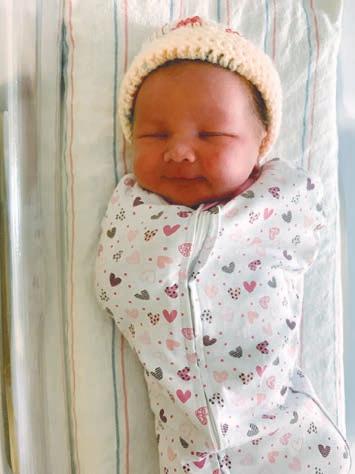
Grandparents are Lisa Archer of Phoenix; Jayne and Peter Behman of Morro Bay, California; and Lucy and Lloyd Ettinger of Wailea, Hawaii.
Georgie has one brother, Ronen, 3. JN
Joan grew up footloose in Manhattan and lived in New York in her youth. In 1963, she was a young widow with three little girls when she met George. They were married soon after. George introduced Joan to golf, which began her mastery and lifetime love of the game. In 1972, George had the opportunity to come to Phoenix to join an anesthesiology practice here. After buying a house in a weekend, Joan, George and Amy moved to Phoenix, followed by Jill, Bob, Rachel and Jan; Jeff and then more grandkids soon joined the family in Phoenix. In the early years in Phoenix, Joan loved hosting large family dinners every Sunday night in the house in Clearwater Hills.
In Phoenix, Joan’s family grew and her golf game flourished. She was an avid golfer into her 80s, enjoyed several theaters’ season tickets (as well as the kids’ performances) into her 90s and lived in her home at the Biltmore until she was 9l. Joan was an unapologetic supporter of all causes liberal and loved FDR, Frank Sinatra, Arnold Palmer, Tiger Woods, the Obamas, crossword puzzles, morning coffee outside, pinot grigio, clothes shopping (and returning), lunches on Wednesday with her daughters, Sunday dinners out and, most of all, her family. She maintained her great style and flair until the very end. She is greatly missed.
Our family is most grateful to the wonderful, caring staff at the Sherman Home | Hospice of the Valley, who took impeccable care of our mom during her stay there. Donations can be made to Hospice of the Valley, 1510 E. Flower St., Phoenix, AZ 85014.
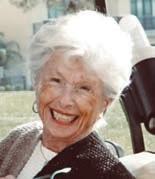
Rabbi Sharon Brous, the Founding Rabbi of IKAR, will give a one hour class exploring various dimensions of Judaism & Social Justice. Join our annual Hammerman Family Lecture Series to honor our friends Stan & Cheryl as we engage in this morally urgent call to sacred responsibility.
